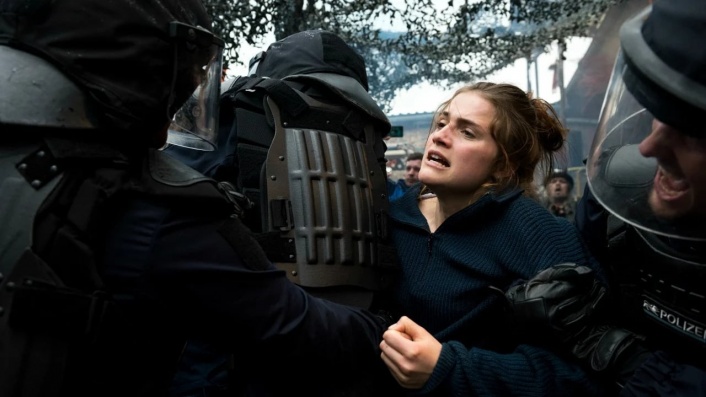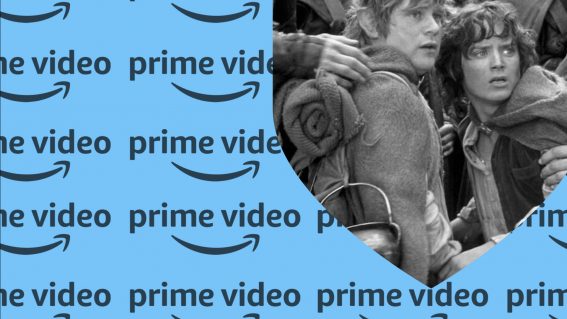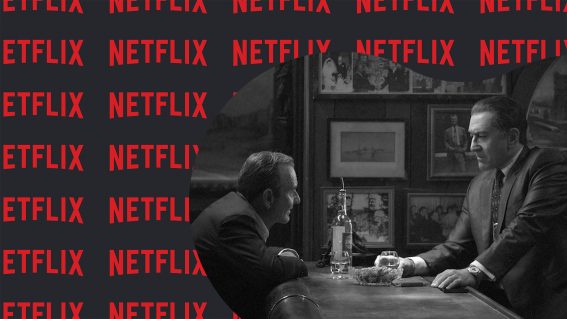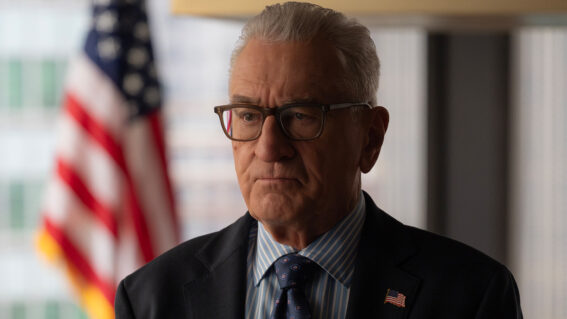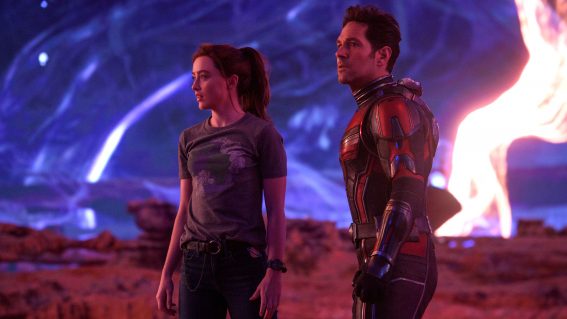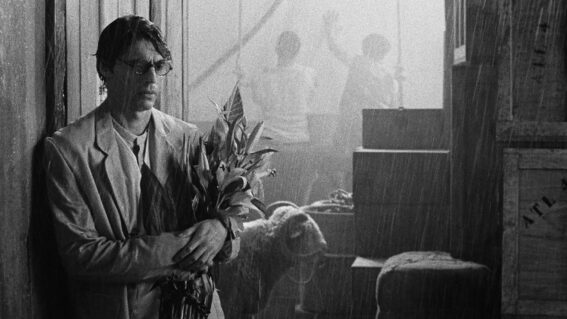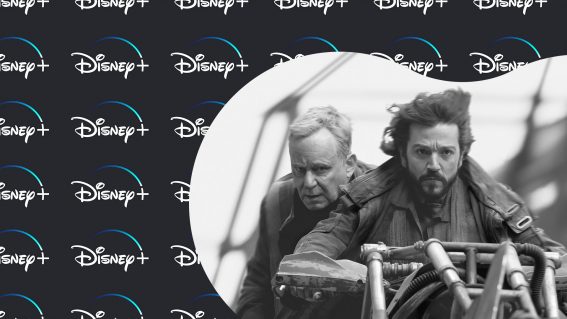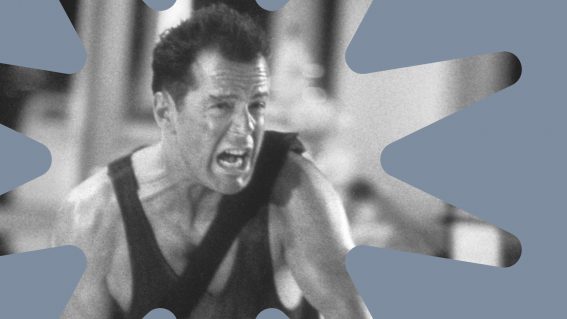Archive of capsule reviews for thriller movies
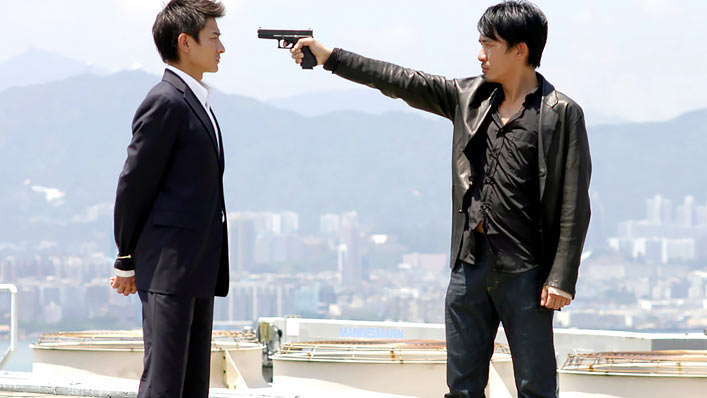
Here we’ve preserved Sarah Ward’s short reviews of the most awesome thriller films, removed at various points from different streaming service guides. Click on each title to check out where the films are available to stream right now.
And Tomorrow the Entire World (2020)
Germany’s 2021 submission for the Best International Film Oscar, And Tomorrow the Entire World is both topical and tense—and, on filmmaker Julia von Heinz’s part, impassioned, angry and immersive as well—as it steps inside the fight against fascism. In a riveting portrayal, Mala Emde plays law student Luisa, who starts moving away from her comfortable upbringing to battle far-right factions peppering Germany’s political landscape during her studies.
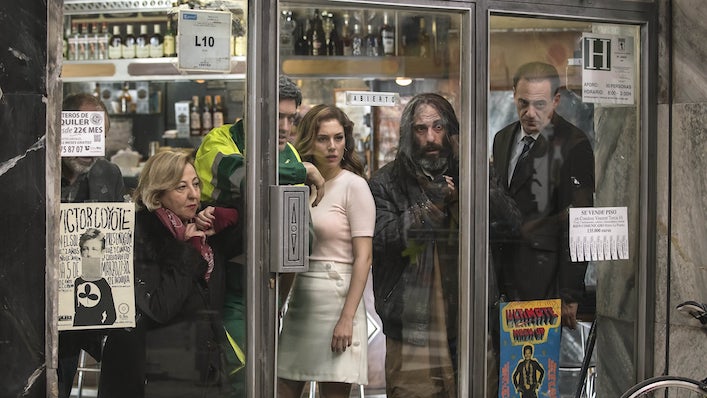
The Bar (2017)
Álex de la Iglesia’s films frequently feel like an onslaught. They’re meant to; frenetic, kinetic, off-kilter and chaotic is usually the Spanish filmmaker’s style. With The Bar, he tackles a hostage setup with both thrills and black comedy, after a Madrid cafe becomes the focal point for a series of random sniper killings. This 2017 movie isn’t short on plot as a group of strangers find themselves trapped in the eponymous spot, with their circumstances constantly shifting.
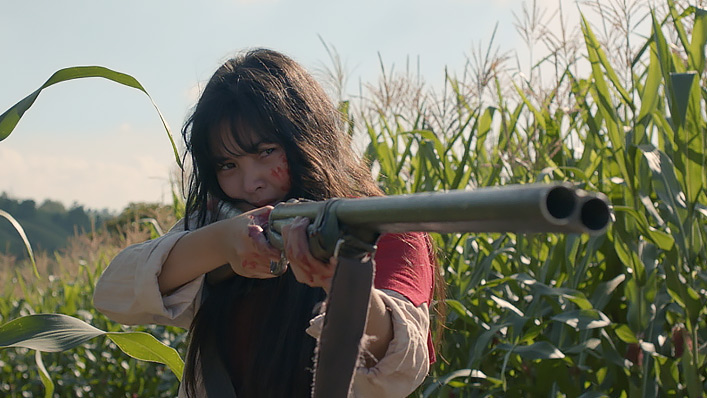
Birdshot (2017)
Submitted as the Philippines’ entry into the 2017 Oscars’ Best Foreign Language Film category, Birdshot is a quiet and small movie that wrings ample tension out of a straightforward but always absorbing situation. In the nation’s countryside, farm-dwelling 14-year-old Maya (Mary Joy Apostol) lives with her father Diego (Ku Aquino), who teaches her to shoot. When she accidentally kills an endangered eagle, the local police are soon on her trail.
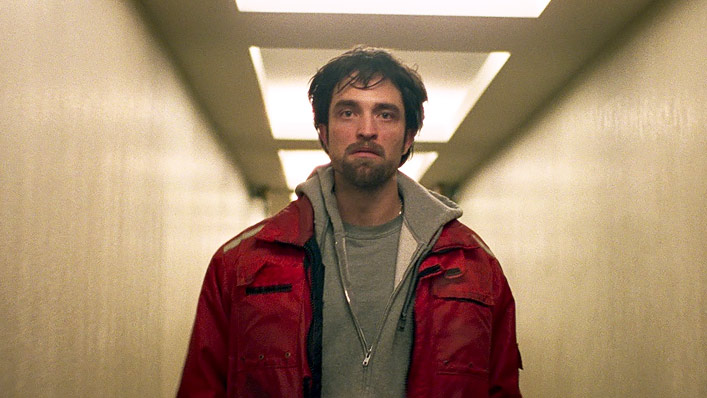
Good Time (2017)
Watching a film directed by the Safdie brothers probably isn’t recommended for viewers with high blood pressure. Their movies live and breathe tension, as Good Time demonstrates for 101 rattling minutes. In an impressively gritty and unglamorous performance, Robert Pattinson plays a small-time criminal determined to do whatever it takes to rustle up the cast to get his brother (Benny Safdie) out on bail.
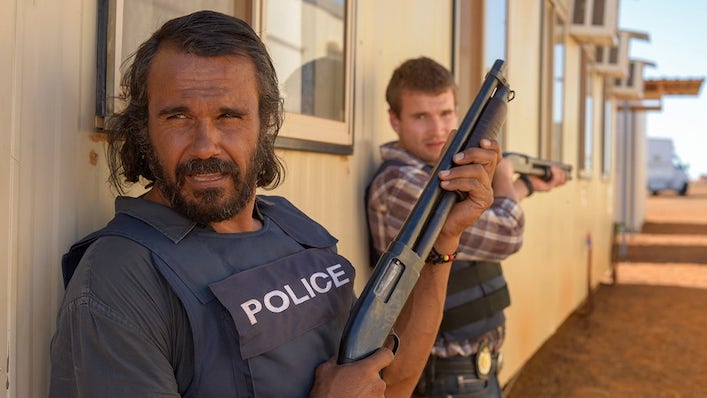
Goldstone (2016)
The role of Jay Swan will always be synonymous with the great Aaron Pedersen. The franchise that brought the detective to the screen will always bring Ivan Sen’s name to mind, too. The latter writes, directs, shoots, edits, and composes the music for Goldstone, one of Aussie cinema’s rare sequels. And with Swan now searching for a missing woman in an insular mining town, this second effort both deepens and expands Mystery Road’s exploration of Australian race relations.
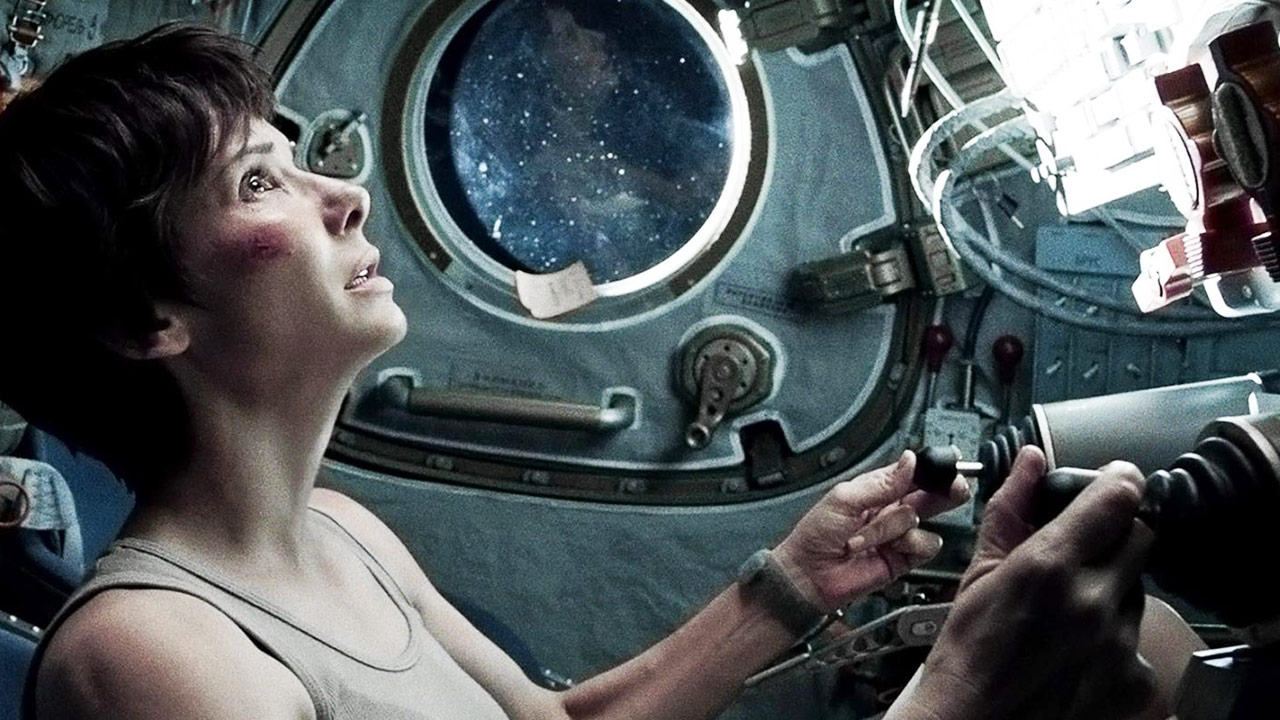
Gravity (2012)
Tense doesn’t even begin to describe Alfonso Cuarón’s seven-time Oscar-winner Gravity. Dazzling doesn’t satisfactorily sum up its technical marvels, either, which play an enormous part in making the space-set film as nerve-racking as it is. More than a few movies have soared into the sky to find thrills, but watching Sandra Bullock play a stranded astronaut on a desperate quest for survival above the earth is up there with sci-fi’s most memorable white-knuckle efforts.
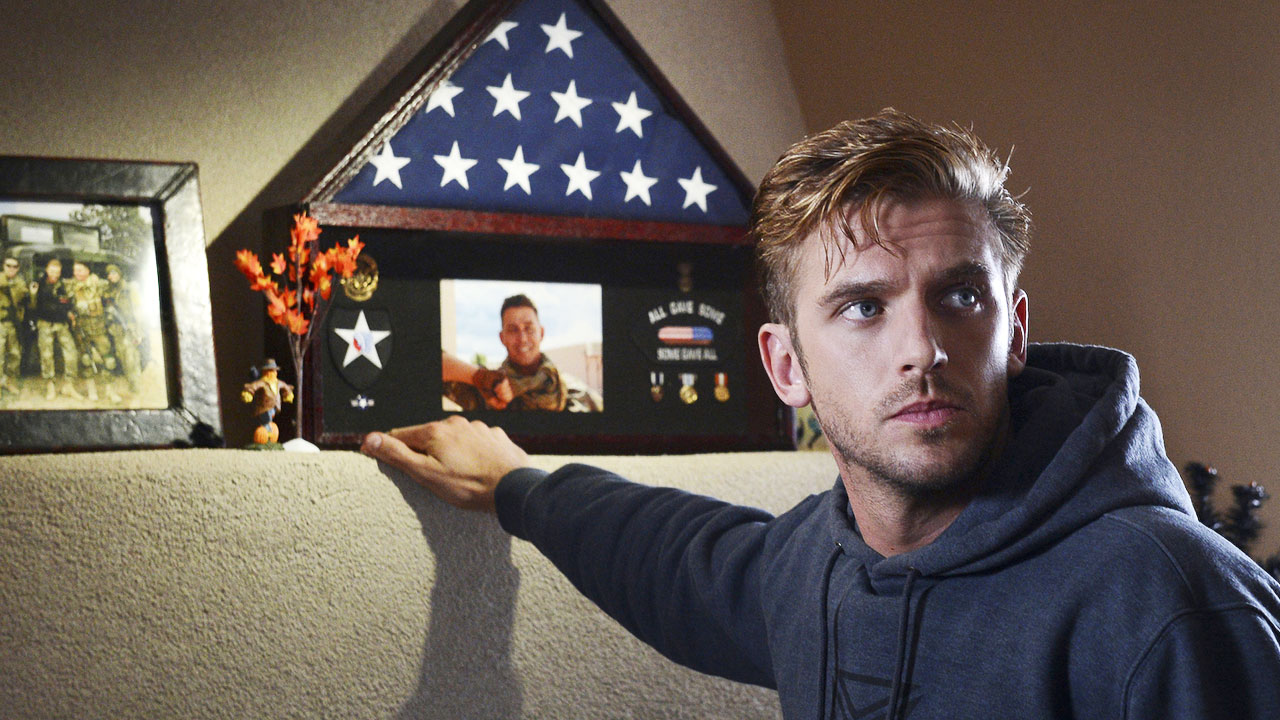
The Guest (2014)
Slick, streamlined and spectacularly cast, The Guest delivers a thriller masterclass from director Adam Wingard and screenwriter Simon Barrett. The concept is as straightforward as the genre gets, charting a stranger’s impact upon a grieving family after showing up claiming to be a friend and former army colleague of their recently deceased son. But when that surprise arrival is played by Dan Stevens, and the whole film drips with intelligence and evocative style—even at its most violent—it’s a winner.
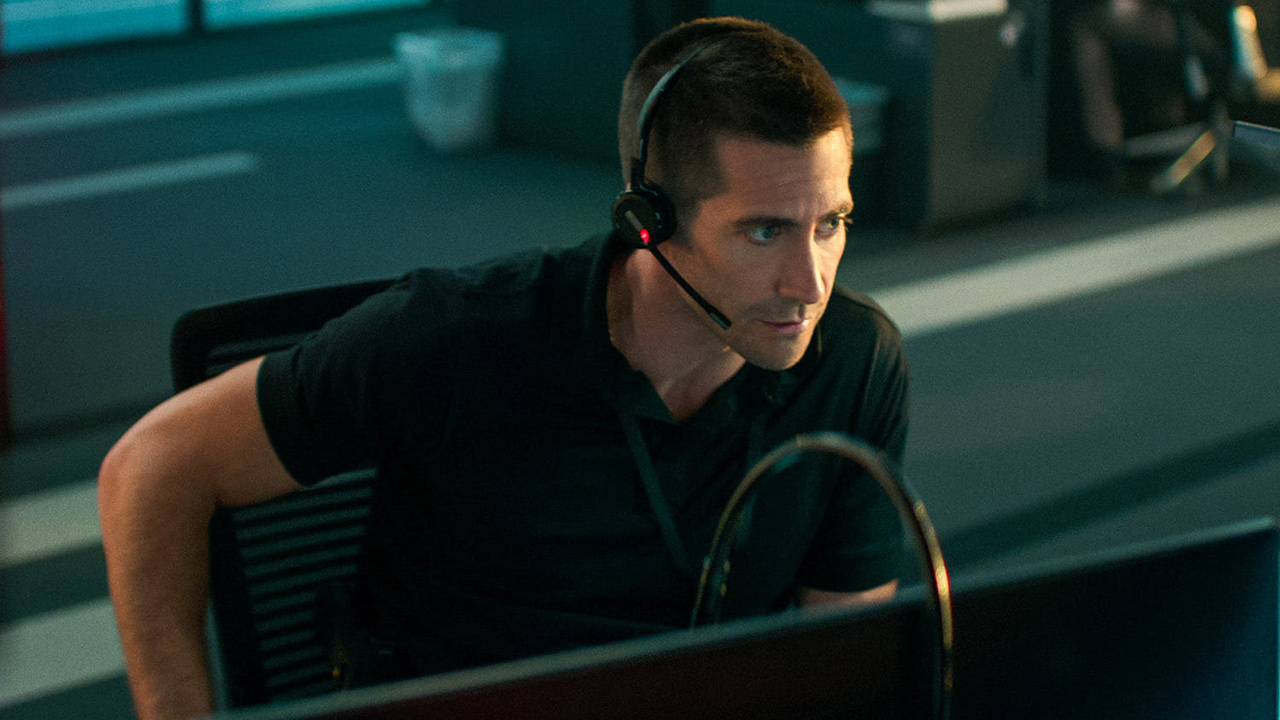
The Guilty (2021)
When Danish movie The Guilty arrived in 2018, it instantly joined the ranks of immersive and engaging single-setting thrillers, unfurling its story via a police officer assigned to emergency dispatch when a kidnapping call comes in. Starring Jake Gyllenhaal and directed by Antoine Fuqua, the always-inevitable US remake isn’t quite as powerful as the original, but it still takes viewers on a suspenseful ride—and Gyllenhaal is fantastic as the cop trying to save an abducted woman while also facing his own career crisis.
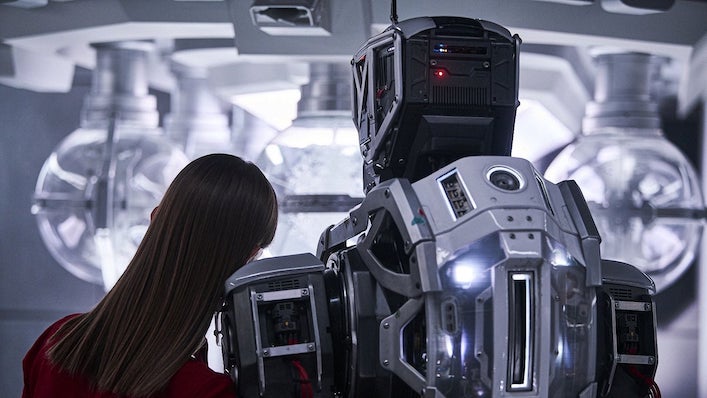
I Am Mother (2019)
In a post-apocalyptic future, a girl grows from a baby to a teenager (Clara Rugaard) under the care of a robot called Mother (voiced by Rose Byrne), all within the safety of an impenetrable bunker—until a stranger (Hilary Swank) comes their way. One of the most thrilling aspects of I Am Mother stems from its nimble screenplay, with the Australian film bearing much in common with other dystopian, survivalist and robot-centric movies, and yet always finding its own niche.
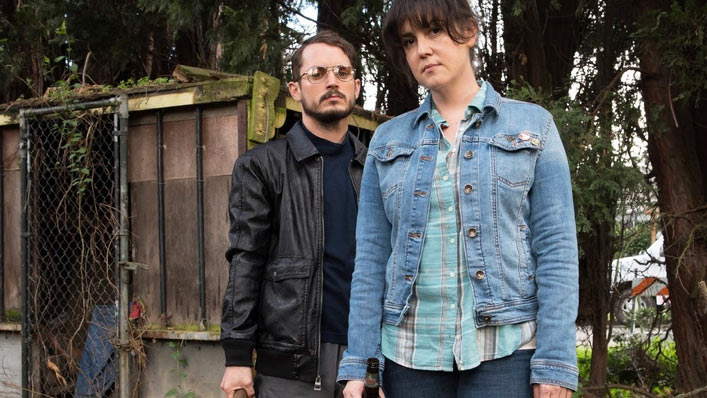
I Don’t Feel At Home in This World Anymore (2017)
Melanie Lynskey leads this slow-simmering, sometimes-comedic vengeance-driven thriller, while Blue Ruin and Green Room actor Macon Blair writes and directs. That’s a superb combination. As a woman who has just been burgled, then decides to track down her stolen laptop herself—with help from her neighbour (Elijah Wood)—Lynskey commands every frame she’s in. And, in conveying the titular sentiment, Blair crafts a streamlined but weighty feature for his directorial debut.
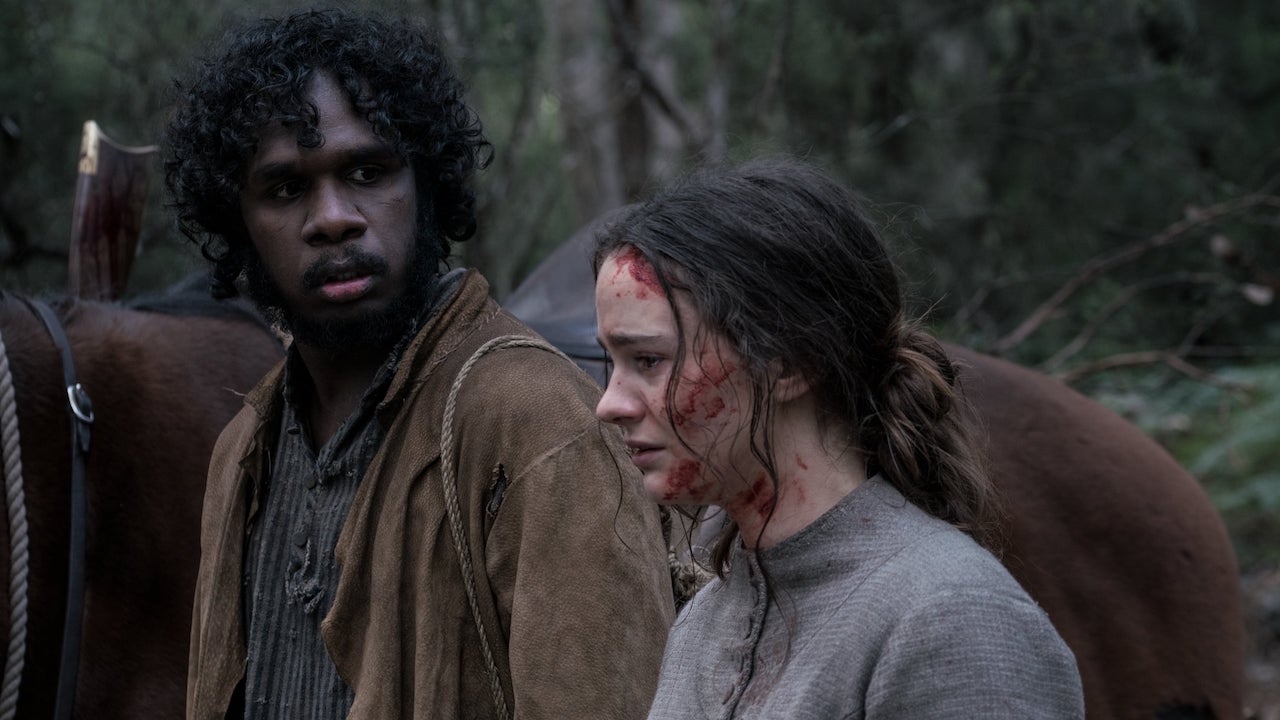
The Nightingale (2018)
Jennifer Kent’s sophomore feature, following The Babadook, is a stunning piece of Australian cinema that isn’t afraid to confront the country’s violent and oppressive colonial past head on. From its brutal beginning, which demonstrates the horrific treatment received by Irish convict Clare Carroll (Aisling Franciosi) at the hands of British soldiers, The Nightingale doesn’t waver in tone or intensity—or in its exceptional performances by Franciosi and Indigenous dancer-turned-actor Baykali Ganambarr.
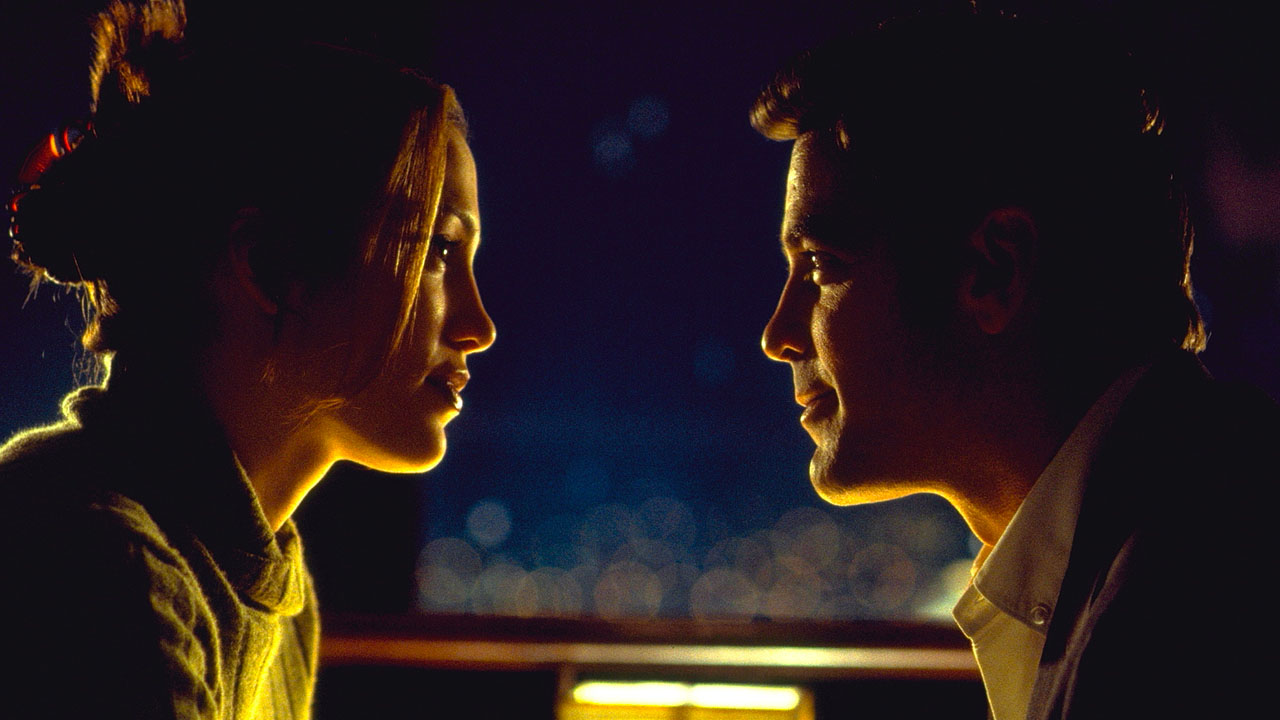
Out Of Sight (1998)
Based on the Elmore Leonard novel of the same name, smoking with chemistry between George Clooney and Jennifer Lopez, and one of Steven Soderbergh’s trademark heist films, Out of Sight fits into many genres. But if Netflix wants to call it a thriller, we’ll take it. Clooney plays a charming bank robber, Lopez is the US Marshal on his trail, and the film’s car boot scenes are dynamite. When it first hit screens in 1998, neither Clooney nor Lopez had ever been better—and this remains a career highlight for both.

The Platform (2019)
Even if The Platform didn’t hit Netflix just as the world was experiencing pandemic-induced supermarket battles for food and household essentials, it would’ve proven an incisive thriller—and, in its horror-driven quest to unpack society’s inherent hierarchies, an engaging one. In a tower-like prison, inhabitants can only eat from a food-filled platform that descends from the top of the building—a literal but compelling example of every-man-for-himself attitudes.
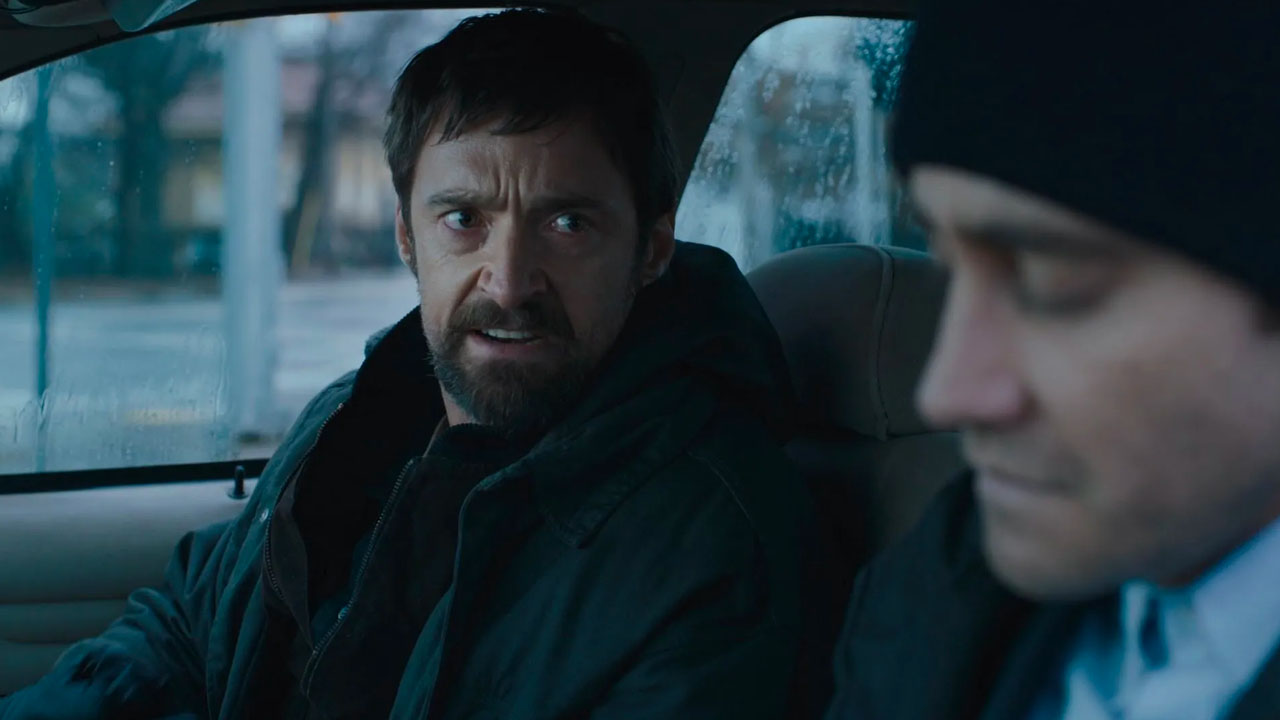
Prisoners (2013)
When Denis Villeneuve made his English-language debut, of course he did so with a thriller, the French Canadian filmmaker’s favourite genre. As led by Hugh Jackman and Jake Gyllenhaal, the bleak, dread-inducing Prisoners charts the abduction of two Pennsylvanian girls, the police investigation to find the culprit and the response by one of the children’s fathers. Also impressive is the rest of the cast, spanning Paul Dano, Melissa Leo, Viola Davis, Maria Bello and Terrence Howard.
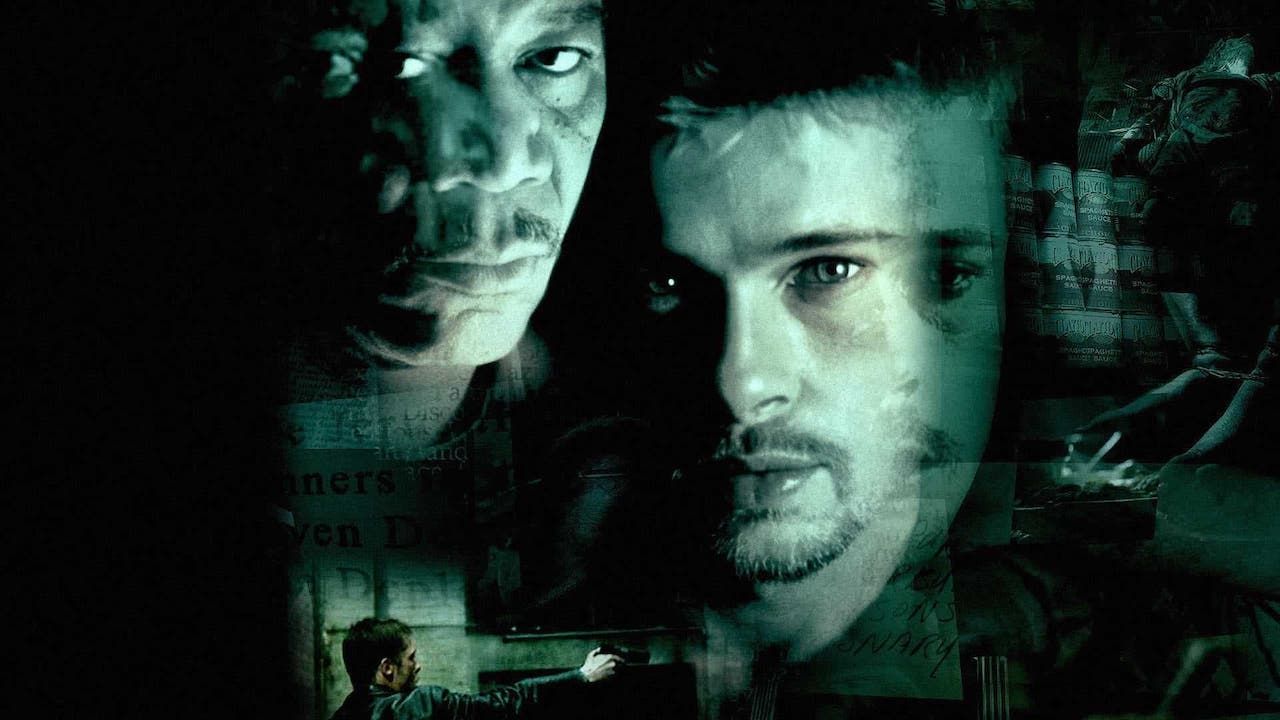
Se7en (1995)
Alongside Zodiac, Se7en is one of David Fincher’s perfect thrillers, tackling a topic—serial killers—that the director has clearly found both fascinating and riveting across his career. No one will ever forget the film’s ending, or Brad Pitt’s screaming as it unveils its last grisly shock. No one will ever shake the movie’s elaborate and unsettling crime scenes either, or its Nine Inch Nails-soundtracked opening credits. Yes, the list keeps going—because when Fincher tackles murder, he sets the bar.
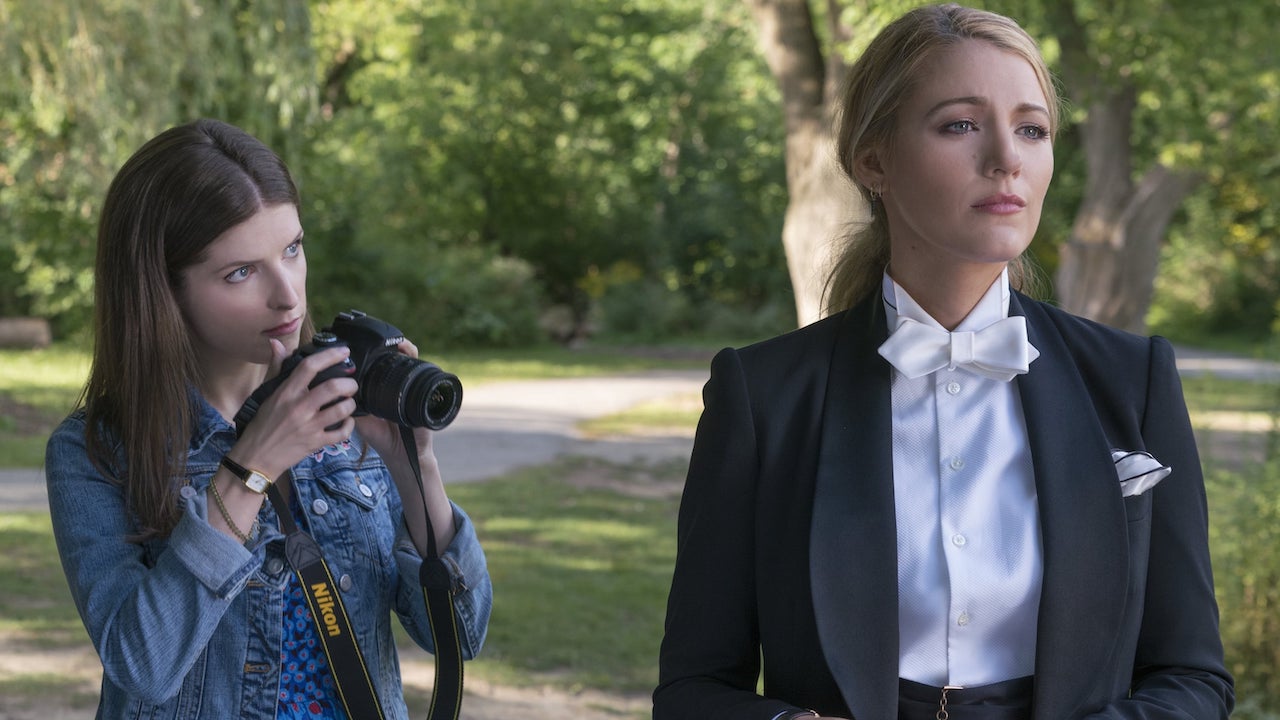
A Simple Favour (2018)
Anna Kendrick and Blake Lively make a suitably dynamic duo in A Simple Favour, an upbeat, intriguing and immensely fun black comedy thriller about two women who become friends when their children start palling around at school. That’s just the beginning in this twist-heavy affair, which proves director Paul Feig’s versatility. In fact, it’s the noir-ish delight that no one suspected the Bridesmaids filmmaker had in him—and now a sequel is on the way.
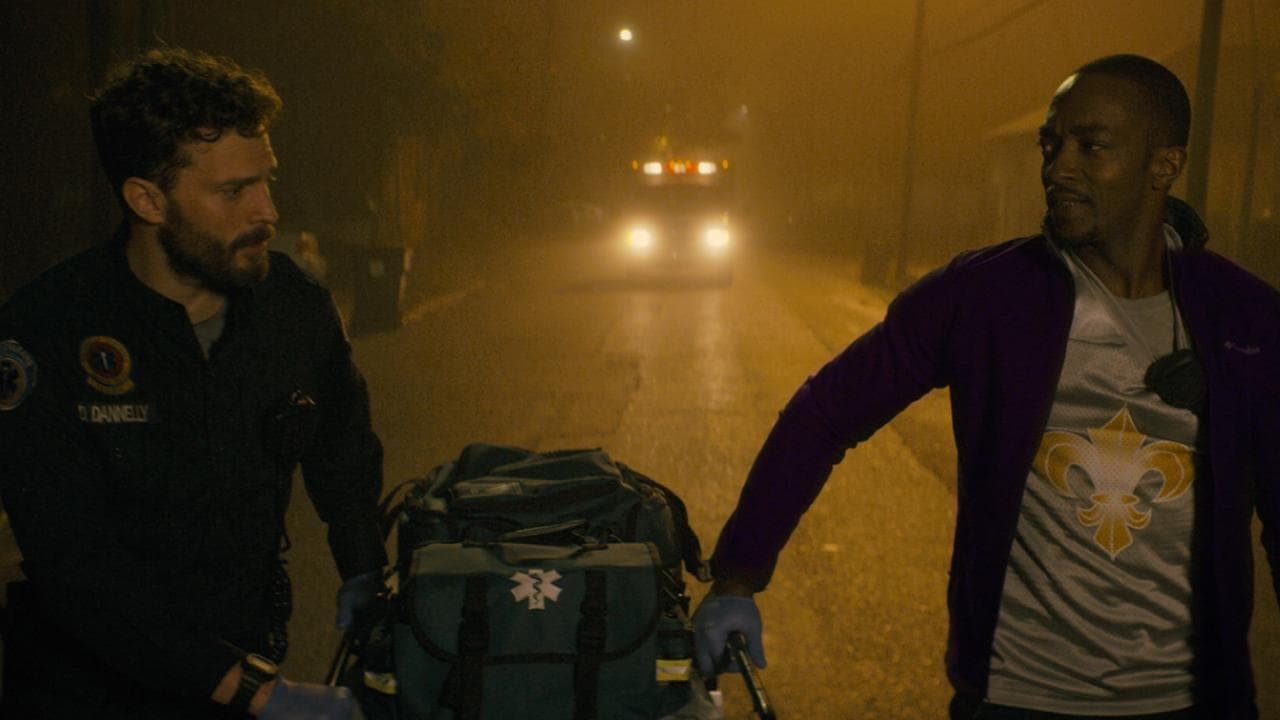
Synchronic (2019)
Justin Benson and Aaron Moorhead have a knack for killer premises, as the filmmaking duo demonstrate in Synchronic. Jamie Dornan and Anthony Mackie play New Orleans paramedics investigating a string of deaths linked to the eponymous designer, which messes not only with minds and lives but also with space and time. This smart, twisty, mind-bending and immersively shot suspense ride is one of the best sci-fi thrillers in recent years.
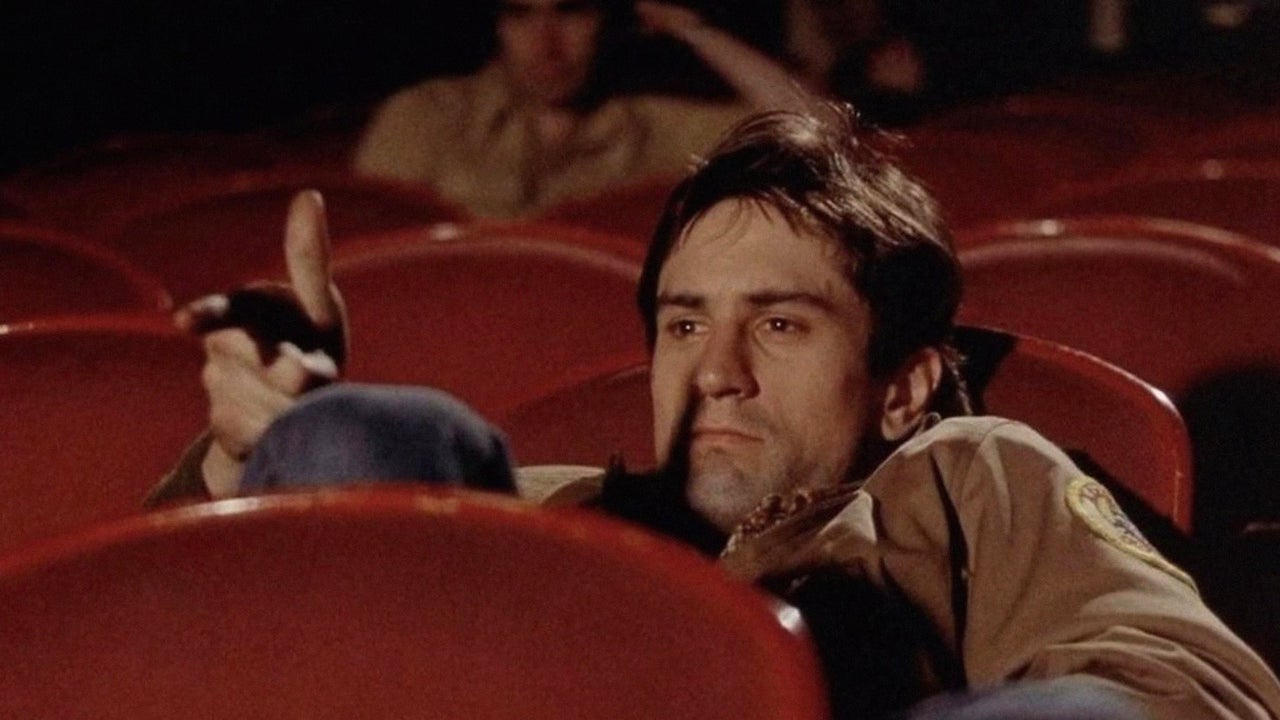
Taxi Driver (1976)
Here is a film that would not take it anymore. Almost every Paul Schrader-penned movie about lonely men rallying against an uncaring world and trying to redress its ills fits that description, and many of his collaborations with Martin Scorsese do, too. Nonetheless, their first feature together happens to be one of the greatest films ever made. Every element is perfection, from Bernard Herrmann’s intoxicating score (and his last) through to Robert De Niro’s career-defining performance as Travis Bickle.
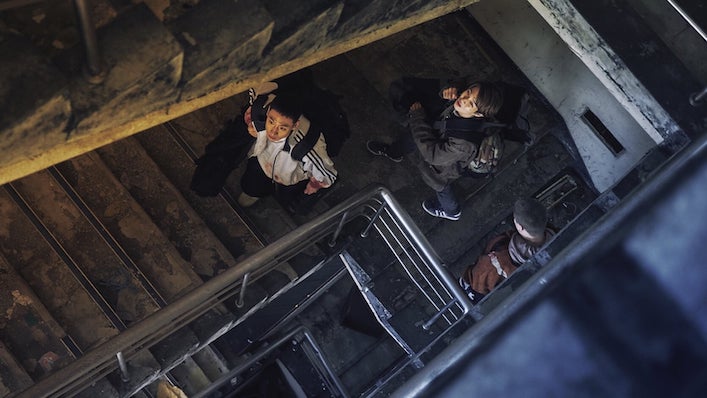
Time to Hunt (2020)
Directing his second feature following his 2011 debut Bleak Night, writer/director Yoon Sung-hyun doesn’t lack in ambition, crafting a dystopian thriller that’s also an action-packed heist film. Time to Hunt starts with Jun-seok (Lee Je-hoon) leaving prison after serving his sentence for one failed heist, then convincing his pals (Ahn Jae-hong and Choi Woo-shik) that they should stage another one. From there, the expertly crafted sense of intensity proves relentless.

Uncut Gems (2019)
Adam Sandler plus the Safdie brothers is a match made in cinephile heaven. Any time that Sandler embraces his serious side, it’s worth paying attention—but when put through the ringer by the directors of Heaven Knows What and Good Time, it’s something truly special. He plays a jeweller desperate to close a big deal, earn a huge payday, settle his debts and fix his life, and he’s operating at maximum intensity, as is everything in the movie.

The Art of Self-Defense (2019)
When Jesse Eisenberg was cast as Mark Zuckerberg in The Social Network, it was a stroke of genius. But, playing a socially awkward accountant who begins karate lessons after he’s attacked on the street, he’s just as aptly deployed in the black comedy-thriller hybrid The Art of Self-Defense. Filmmaker Riley Stearns uses his star to perfection, conjuring blistering laughs by skewering toxic masculinity, and maintaining a thrilling mood and tone throughout.
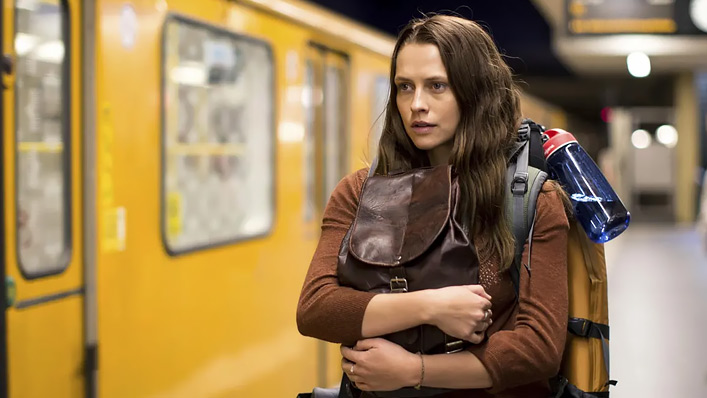
Berlin Syndrome (2017)
When Brisbanite Clare (Teresa Palmer) travels to Germany, she’s excited about a backpacking European holiday. Soon after starting a vacation romance with Andi (Max Riemelt), however, her getaway takes a stressful turn when she becomes his hostage. A terse psychological thriller, Berlin Syndrome is well performed, well directed by Australian filmmaker Cate Shortland and, crucially, is almost distressingly claustrophobic as it chronicles Clare’s plight.

Blood and Black Lace (2019)
First released in 1964, Mario Bava’s Blood and Black Lace helped put big-screen giallo—Italy’s tense, mystery-fuelled, visually lurid and visceral horror-thriller genre—firmly on the map. It’s not only one of the ‘master of the macabre’ filmmaker’s notable features, but one of his most influential as well, tracking the rising body count sparked by a mask killer targeting fashion models in order to find a scandalous diary.
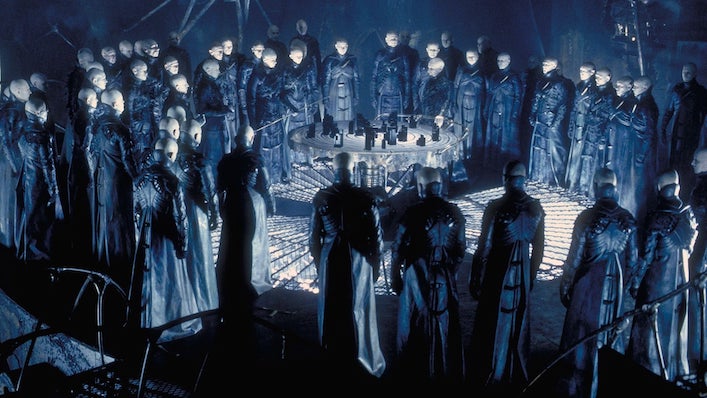
Dark City (1998)
After the gothic fantasy of The Crow, Australian filmmaker Alex Proyas switched to neo-noir meets sci-fi with Dark City—although a visual fondness for all things shadowy firmly remains. One of the great science-fiction thrillers of the 90s, the film’s premise is as alluring as its appearance, with Rufus Sewell playing a man who can’t remember his identity, then finds himself accused of murder, all in a world where eerie men called ‘the strangers’ manipulate memories.
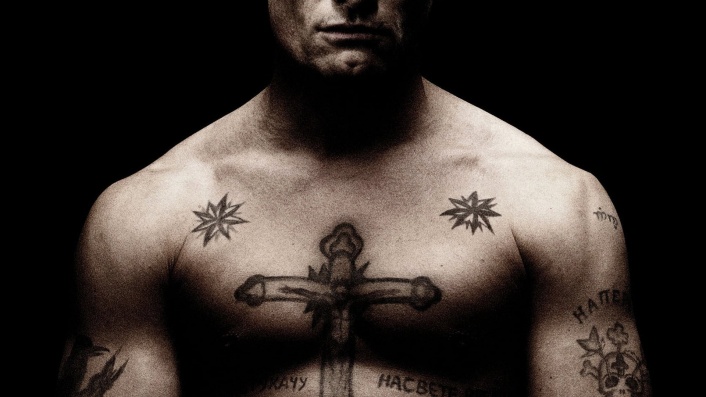
Eastern Promises (2007)
For one scene and one scene alone, Eastern Promises will never be forgotten by anyone who watches it. That’s not to talk down the rest of this excellent film, but the bathhouse-set naked fight scene is just that memorable. David Cronenberg and gangster thrills fit together seamlessly, while Viggo Mortensen is at his bold best in a part that couldn’t be further away from his star-making turn in the Lord of the Rings franchise.
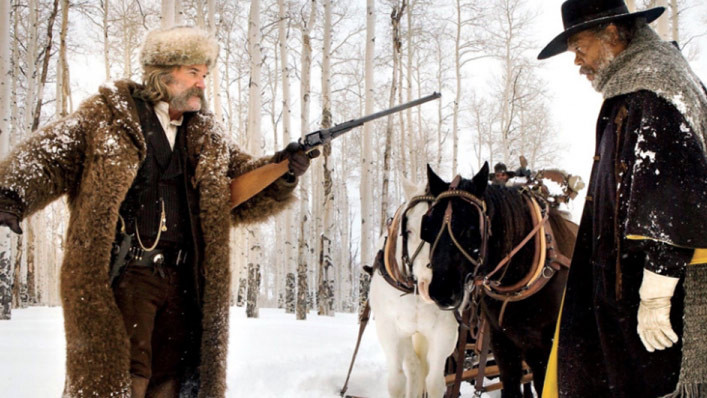
The Hateful Eight (2015)
When Quentin Tarantino traps a band of not-so-law-abiding folks together, witty banter and rampant thrills tend to result. It proved true with Reservoir Dogs, and does so again with western-thriller The Hateful Eight. Alongside criminals and bounty hunters, audiences step inside Minnie’s Haberdashery as a blizzard sets in. The cast includes Samuel L. Jackson, Kurt Russell, Jennifer Jason Leigh and Walton Goggins, who relish Tarantino’s characteristically talky dialogue.
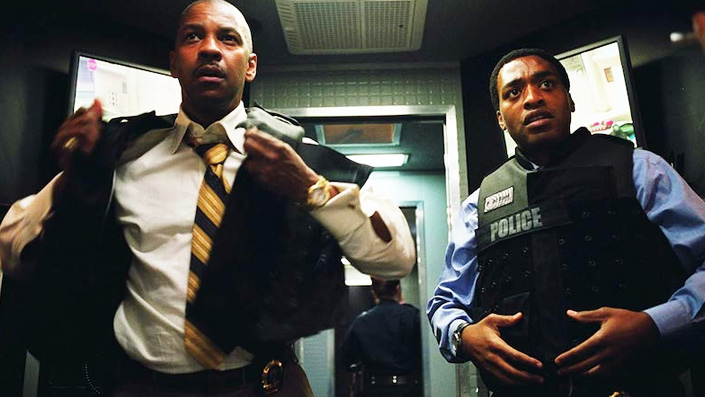
Inside Man (2006)
Heist thrillers have earned a soft spot in viewers’ hearts for a reason: when they’re done well, they’re slick, clever and entertaining as they move their various puzzle pieces around. They’re also immensely easy to watch. Spike Lee’s bank-set, Denzel Washington, Clive Owen and Jodie Foster-starring Inside Man ticks all of those boxes, while equally manoeuvring the genre’s staples in its own ways, nodding to its excellent predecessors and coming up with a mighty memorable twist.
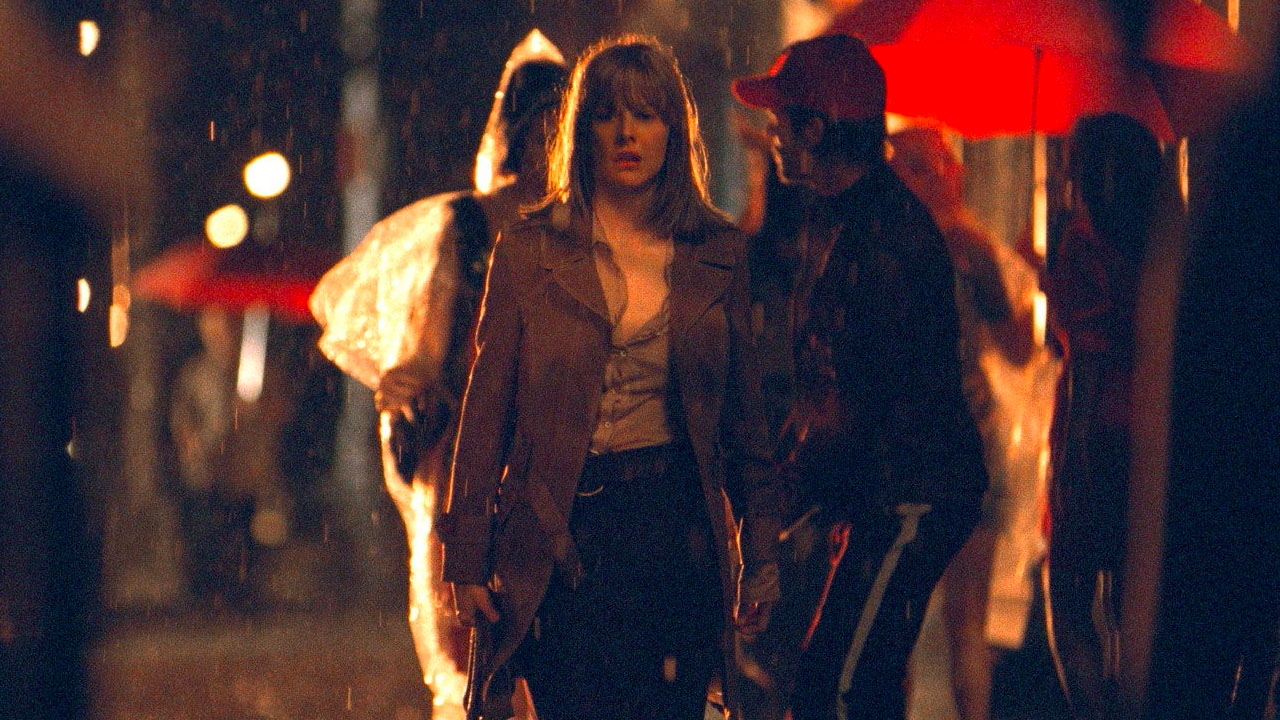
In The Cut (2003)
She might’ve been queen of the rom-coms from the late 80s through till the early 00s, but Meg Ryan steps into vastly different territory with In The Cut. The change couldn’t suit her better; playing an English teacher who becomes wrapped up in a murder investigation, it’s her absolute best performance. And while Jane Campion’s filmography doesn’t have a single weak effort, the complexity she brings to this firmly female-focused psychosexual serial-killer thriller is nothing short of masterly.
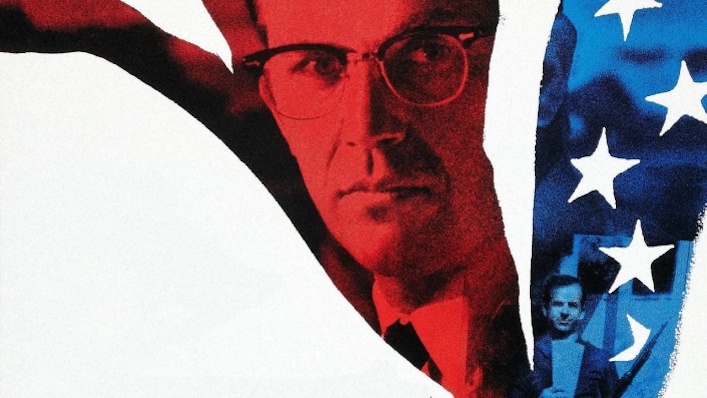
JFK (1991)
When Oliver Stone decided to add the assassination of President John F Kennedy to the political thrillers and dramas on his resume, he was always going to take his time stepping through the minutiae. JFK fills its three-plus hours easily, however, and with ample detail (and speculation). With Kevin Costner leading the cast as a New Orleans District Attorney looking into the events of November 22, 1963, the end result goes heavy on paranoia-inspired thrills and proves compelling in the process.
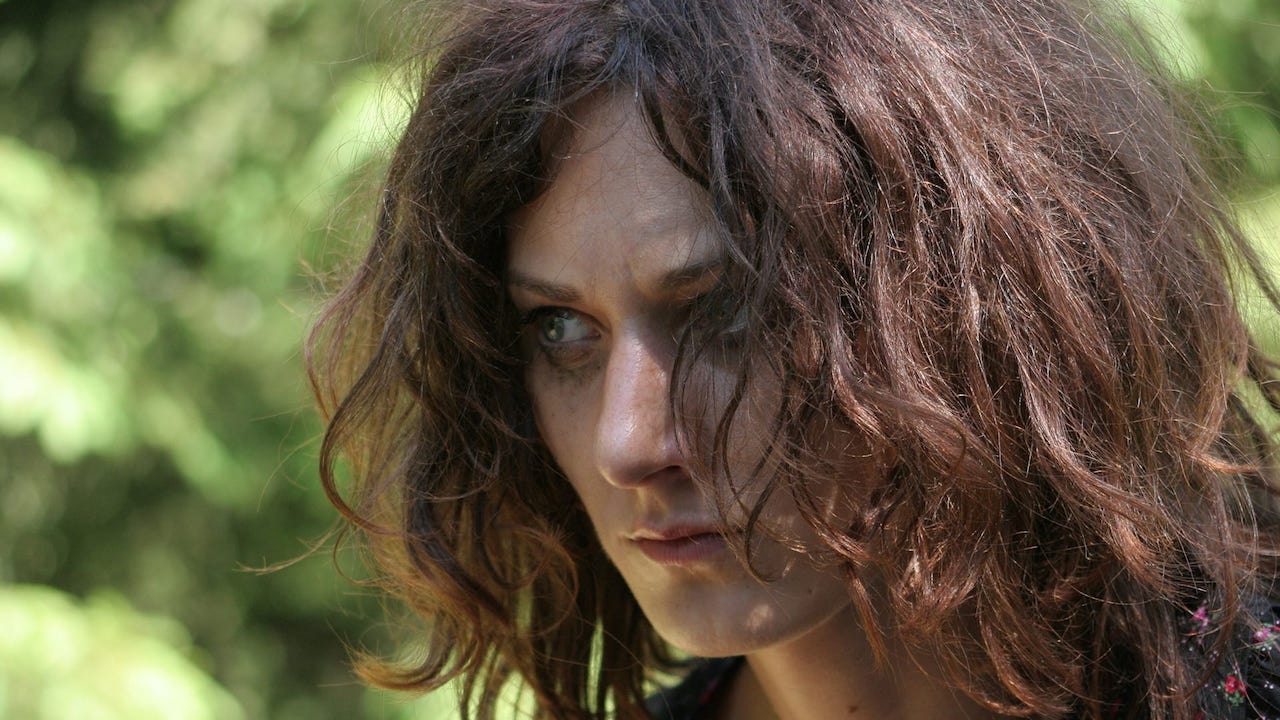
Katalin Varga (2009)
When Peter Strickland’s feature debut premiered at the Berlin Film Festival, it won a Silver Bear for its sound design. That’s one of the British filmmaker’s trademarks, with his films being as thrilling to listen to as they are to watch. With Katalin Varga, his exceptional aesthetic mastery is put to work in the Carpathian Mountains, tracking a woman’s quest for revenge in Hungarian-and-Romanian-language.
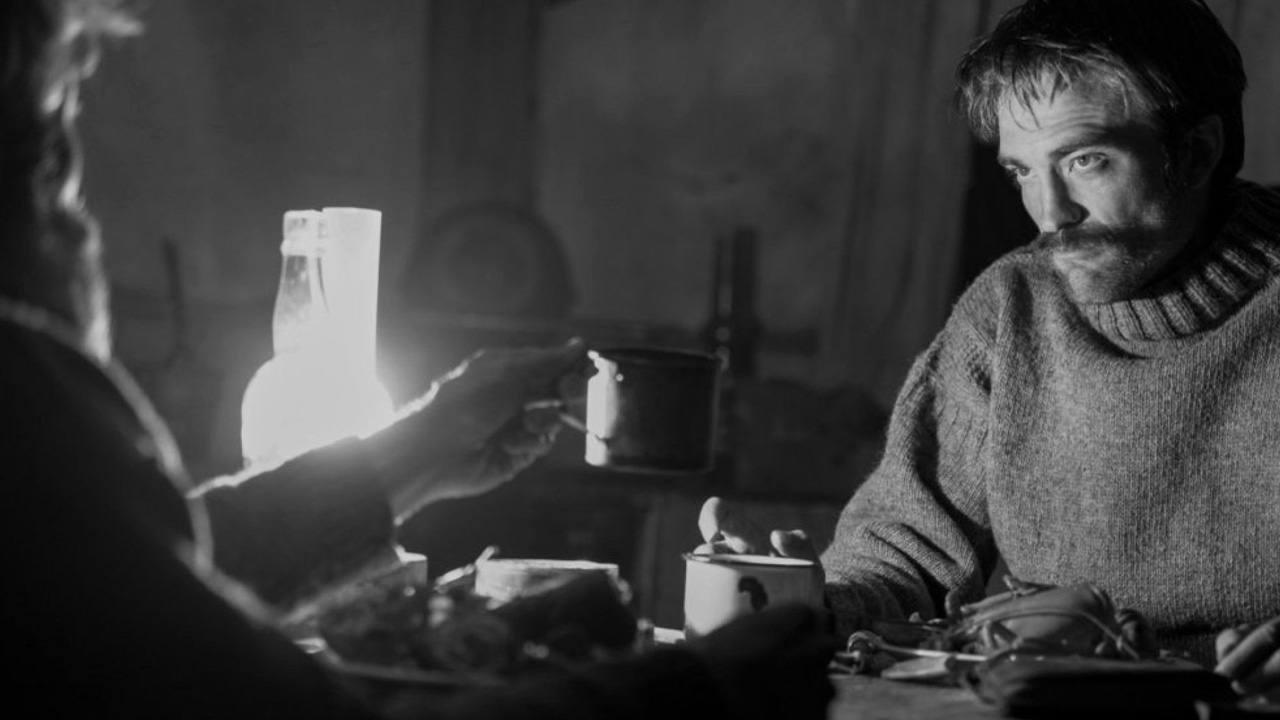
The Lighthouse (2019)
He only has two films to his name so far until The Northman releases in 2022, but Robert Eggers knows how to turn a movie into an experience. He crafts features that regard the filmic medium like the immersive artform it is, and his sophomore effort The Lighthouse is a stellar example. Set in the 1890s, it follows two men trapped in the titular structure by bad weather, and battling their decaying minds as well as each other. Willem Dafoe and Robert Pattinson are superb, as is the feature’s boxed-in monochrome aesthetic.

The Limey (1999)
Steven Soderbergh’s filmography has become so lengthy that it’s easy for some of the prolific filmmaker’s work to get lost. But crime-thriller The Limey is one of his greats. An also-excellent Terrence Stamp plays Wilson, who travels from his native England to Los Angeles to look into the car accident death of his daughter. It’s an intense effort from Stamp and a commandingly tense one from Soderbergh.

Naked Lunch (1991)
Adapted from William S. Burroughs 1959 novel and directed by David Cronenberg, Naked Lunch is often as out-there as it is engrossing — but, it’s a thriller about an exterminator (Peter Weller) whose wife (Judy Davis) picks up an addiction to bug powder, so that comes with the territory. Naturally, there’s no better director for the material, with this hallucinatory, creepy crawly-fuelled tale filled with just the kind of nerve-rattling imagery that Cronenberg is famous for.

Nocturama (2016)
Following a group of young radicals who stage a series of Parisian terrorist attacks, then hide in a department store, Nocturama doesn’t waste a single second of its 130 minute running time. It doesn’t waste a fluid shot or alluring soundtrack choice, either. Inspired by Elephant, Dawn of the Dead, and Assault on Precinct 13, French filmmaker Bertrand Bonello immerses viewers in his characters’ lives, ideals and mindsets, while never veering away from their flaws and contradictions, or from making a statement.
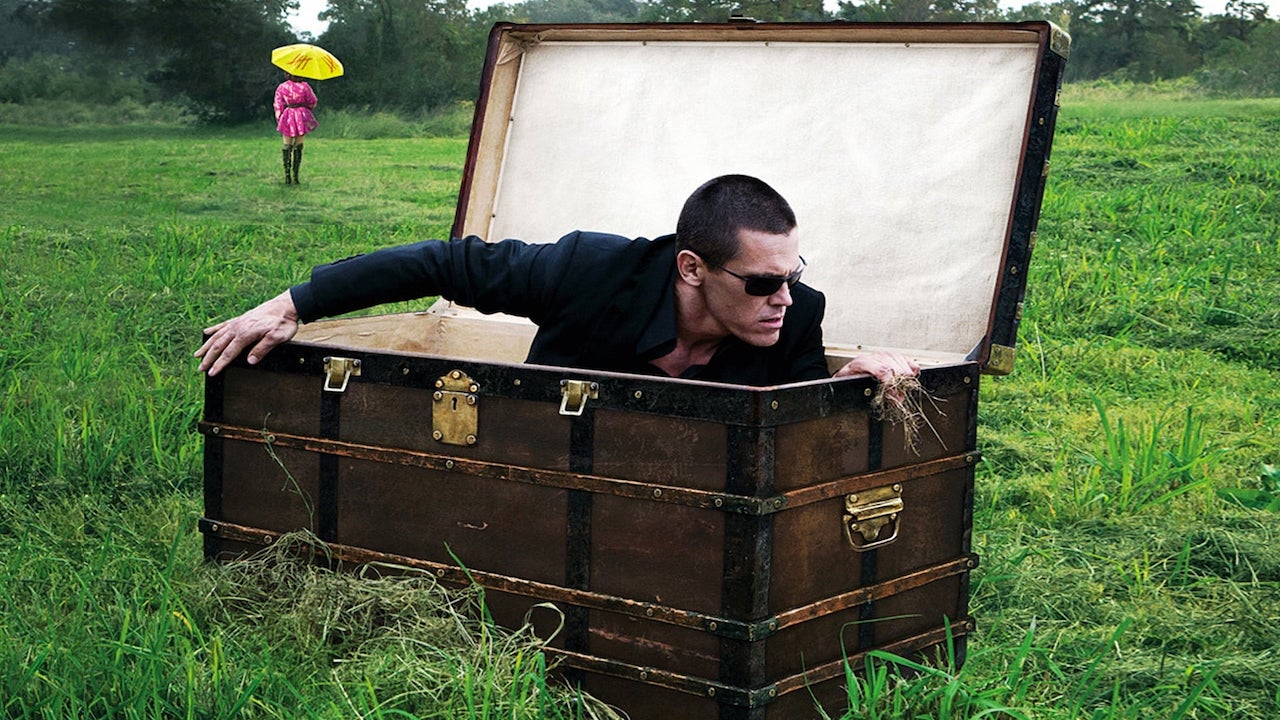
Oldboy (2013)
Park Chan-wook’s Oldboy is the best Oldboy, and that’ll never change. That said, Spike Lee’s 2013 remake still reverberates with stinging savagery as it tears down wealth, privilege, and the type of toxic men who’ve always been able to hide behind both. Lee helms a pulpy, biting, lurid, and melodramatic twist on the tale that’s largely faithful to the original, but sinks its own teeth in—and features memorable performances by Josh Brolin, Samuel L Jackson, and Elizabeth Olsen.

Parasite (2019)
In terms of impact, Parasite was 2019’s biggest film—not only winning the Palme d’Or and picking up the best picture Oscar, but breaking the Academy’s nine-decade preference for English-language movies in the process. It’s easy to see why, from the stunning set design to the labyrinthine narrative. But the ability of Bong Joon-ho’s thriller to live up to its genre and genuinely thrill audiences might just be its biggest achievement.
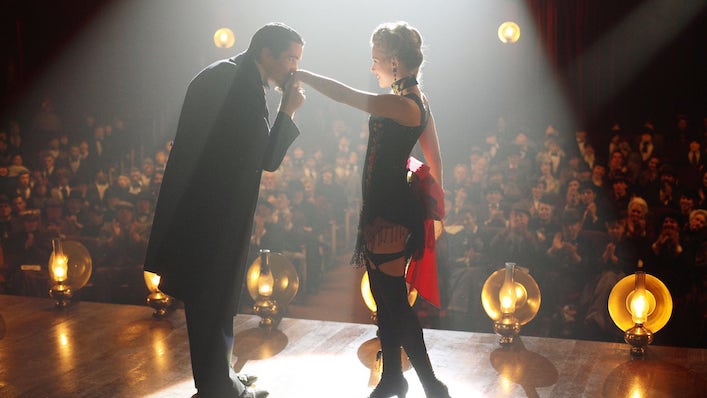
The Prestige (2007)
As well as telling a tale of two obsessive warring magicians hashing out their rivalry in 19th-century London, The Prestige features David Bowie as Nikola Tesla—and both aspects of the film are excellent. So too are leads Hugh Jackman and Christian Bale as said adversaries, in a movie that gets far less attention than Christopher Nolan’s other features, but remains just as entertaining and spectacular.
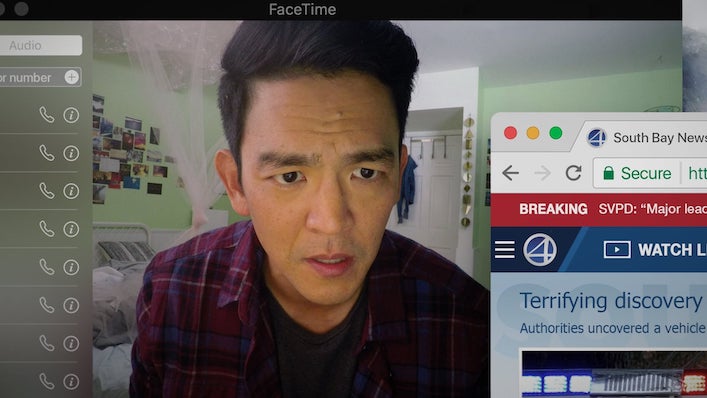
Searching (2018)
One of the best examples of the ‘screenlife’ genre so far, Searching wrings tension, suspense and anxiety out of keyboard clicks, cursor movements, computer screen windows, phone calls and one very distressed father. After his 16-year-old daughter goes missing, David Kim (John Cho) uses every online tool at his disposal to try to find her. Cho is exceptional, but writer/director Aneesh Chaganty’s command of his chosen format is just as compelling.
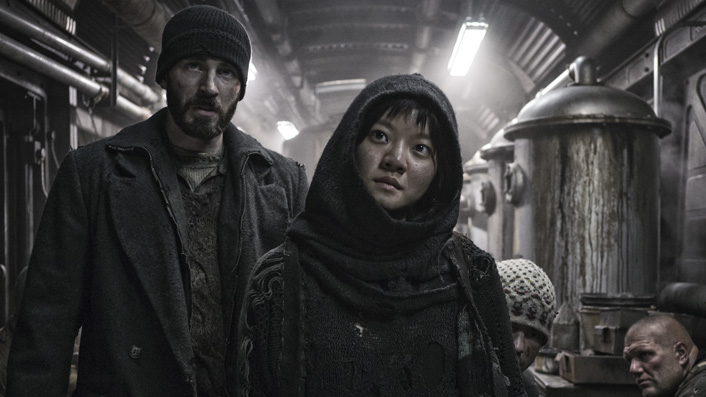
Snowpiercer (2013)
Bong Joon-ho’s English-language debut adapts a graphic novel, enlists an all-star cast (including Chris Evans, Tilda Swinton, Jamie Bell and Octavia Spencer), and ponders a bleak but not fantastical future. In the constantly moving train that gives the movie its title, the planet’s last remaining survivors find themselves recreating the world’s class hierarchies. When the tail-end passengers decide to rise up, both the thrills and societal commentary prove savage.
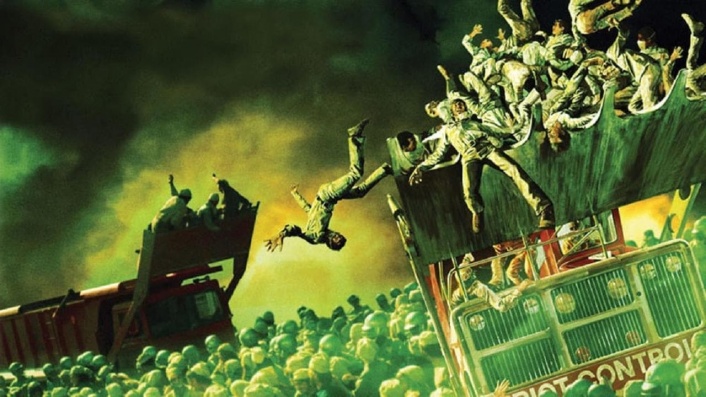
Soylent Green (1973)
Mention Soylent Green’s title—or even read it to yourself—and two words automatically follow. They explain the 1973 film’s big reveal and are well-known not just with the movie’s fans, but in popular culture in general. And yet, even knowing how this sci-fi thriller pans out doesn’t undercut its effectiveness. Many dystopian features made in the past half-century have been shaped by its influence, even if it’s always solid rather than stellar.

The Spy Who Came In from the Cold (1965)
The Spy Who Came In from the Cold stems from the pen of John le Carre, an author whose pages overflow with espionage thrills—and whose books have inspired many a big-screen adaptation. Brought to the cinema by Martin Ritt and featuring a well-cast Richard Burton, the four-time BAFTA winner tasks a British agent with pretending to defect to East Germany. Le Carre-written stories work best when underplayed, and that’s definitely the case here.
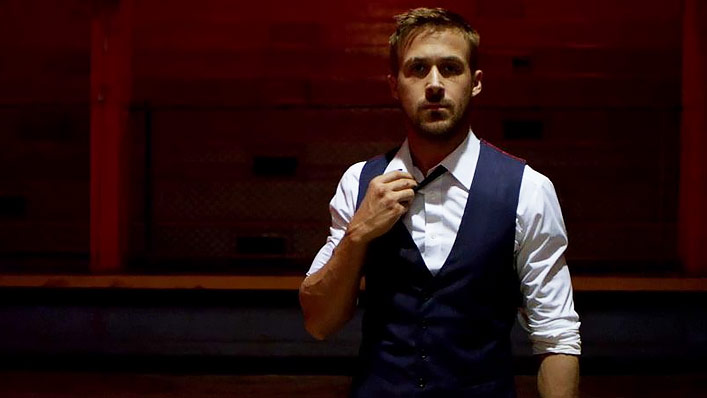
Only God Forgives (2013)
Few filmmakers can bathe the screen in such lustrous neon hues as Nicolas Winding Refn, or paint their frames with such a gritty but alluring glow either. This aesthetic shines in Only God Forgives, a minimalist, ultra-violent Bangkok-set crime thriller that dives deep into the seedier side of the Thai capital. As he did in Drive, Ryan Gosling makes a magnetic lead—this time as a boxing club manager whose life drastically changes after the death of his brother.

Persona (1966)
Ingmar Bergman’s acclaimed 1966 film explores identity, duality and the fine line that can separate one person from another, all with ample help from stars Bibi Andersson and Liv Ullmann. The former plays a nurse, with the latter playing the patient—and well-known actress—she’s caring for. While Bergman’s career isn’t short on highlights, this intimate, often experimental psychological thriller remains one of his most influential features.
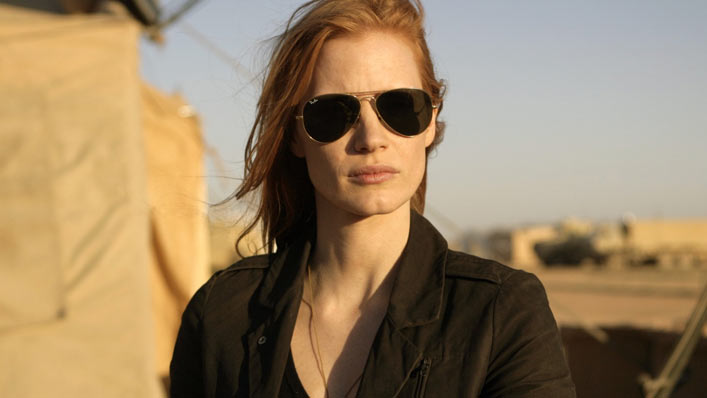
Zero Dark Thirty (2012)
The hunt for Osama bin Laden was always going to get the film treatment. Thank the movie gods that Kathryn Bigelow led the charge. Needling and unnerving at every moment, Zero Dark Thirty vibrates with tension as it follows the analysts and operatives working furiously in the aftermath of the September 11 attacks. Jessica Chastain is exceptional, and Bigelow should’ve picked up another best director Oscar—or at least a nomination.

A Simple Favour (2018)
Anna Kendrick and Blake Lively make a suitably dynamic duo in A Simple Favour, an upbeat, intriguing and immensely fun black comedy thriller about two women who become friends when their children start palling around at school. That’s just the beginning in this twist-heavy affair, which proves director Paul Feig’s versatility. In fact, it’s the noir-ish delight that no one suspected the Bridesmaids filmmaker had in him.
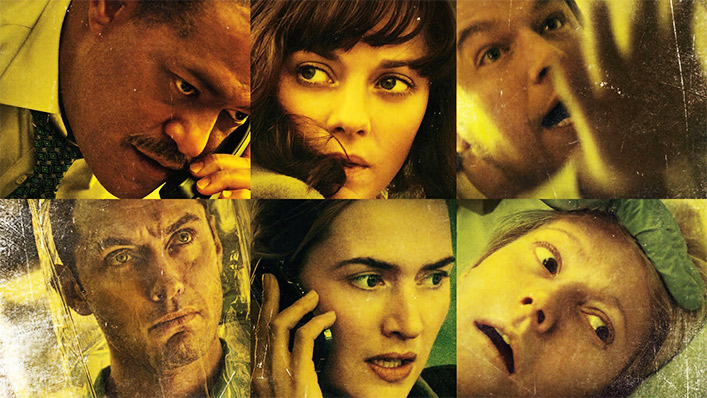
Contagion (2001)
Usually, when a pandemic is involved, no one wants a second wave. But Contagion has experienced exactly that since becoming the most prophetic movie of the 21st century—and, in lockdown, one of the most-watched. Steven Soderbergh’s virus-driven thriller is so prophetic that it’s now both uncanny and eerie. Its relentlessly bleak mood and top-notch cast (including Matt Damon, Jude Law, Marion Cotillard and Kate Winslet) all repeatedly hit their marks, too.

Election (2005)
Not to be confused with the Reese Witherspoon comedy of the same name, Johnny To’s 2005 crime thriller serves up the classic Hong Kong combination: warring gang leaders locked in a power struggle, a dark view of its characters’ motives and top-notch stars. Simon Yam and Tony Leung Ka-fai play the battling heavies in a movie that won four Hong Kong Film Awards and spawned a sequel just a year later.
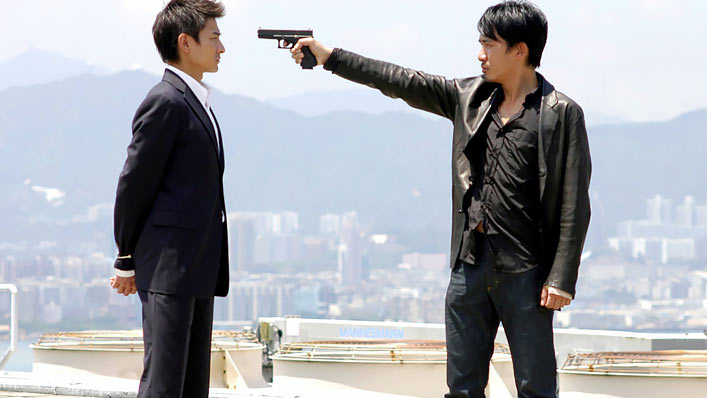
Infernal Affairs (2002)
Before there was The Departed, there was Hong Kong’s Infernal Affairs. If Martin Scorsese is remaking your movie, you’re obviously doing something right. Boasting a high-profile cast (including Andy Lau, Tony Leung, Anthony Wong, Eric Tsang, Sammi Cheng and Kelly Chen), co-directors Andrew Lau and Alan Mak craft a crime thriller immersed in a duplicitous web of police and gangster activity. The 2002 film also inspired two sequels in 2003.
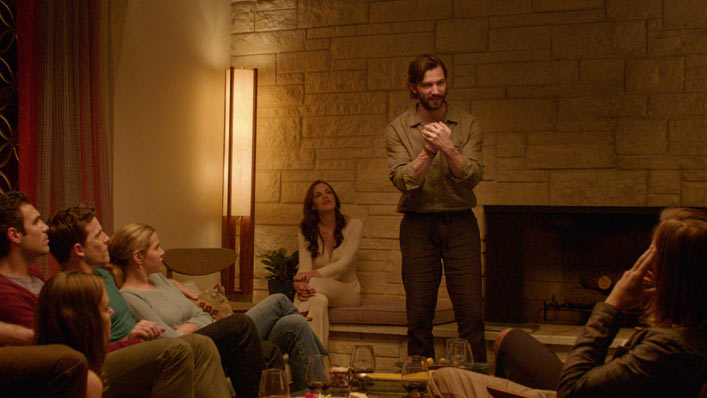
The Invitation (2015)
The Invitation starts with a simple premise, then twists it into something darkly astute, tense and commanding—slowly, demonstrating a mastery of pace, while pondering weighty emotions. Karyn Kusama’s film begins with a gathering of friends (including Logan Marshall-Green, Tammy Blanchard and Michael Huisman), which turns into the dinner party from hell, triggering an onslaught of suspicion and thrills.
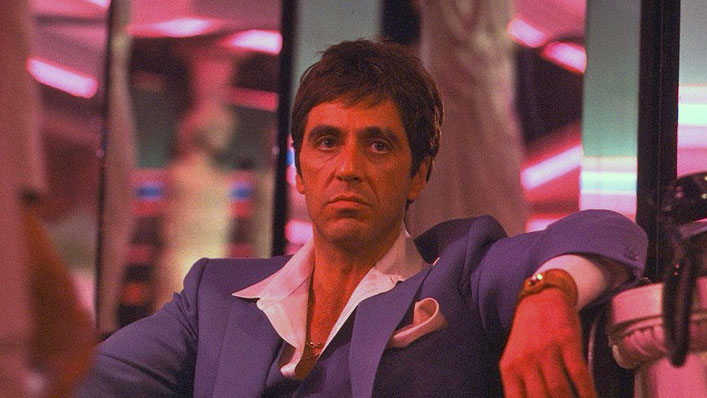
Scarface (1983)
Starring Al Pacino as drug lord Tony Montana, directed with the flair that Brian De Palma is known for and set to a pulsating Giorgio Moroder score, Scarface is the quintessential ‘80s crime thriller. It’s equally vivid and grim, both over-the-top and steeped in the ups and downs of criminal behaviour. And it rides quite the narrative rollercoaster. Yes, it’s over-quoted and over-referenced in popular culture, but it undeniably packs a punch.
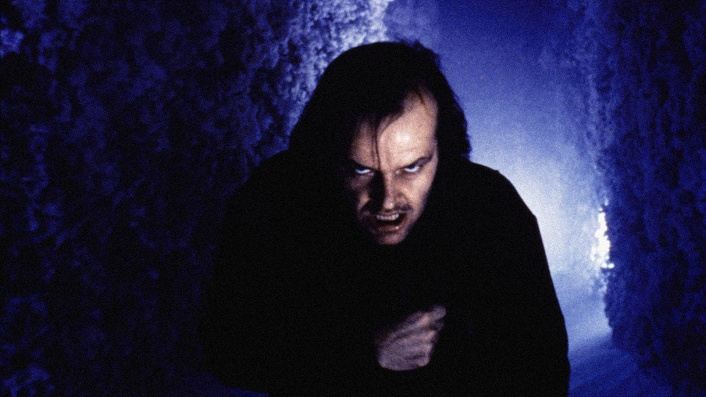
The Shining (1980)
Stephen King might’ve disliked Stanley Kubrick’s page-to-screen adaptation, but the psychological thrills of The Shining are unparalleled in cinema. Jack Torrance (Jack Nicholson) settles into his new winter caretaker job at the Overlook Hotel, tries to focus on his writing but swiftly succumbs to the venue’s supernatural forces and starts terrorising his family (Shelley Duvall and Danny Lloyd). A terrifying, incessantly agitating masterpiece results.

Syriana (2005)
With its multiple storylines converging around a shared topic, its incisive examination of a wide-ranging issue, and its ability to prove both astute and urgent at every turn, Syriana is exactly the film that Traffic would’ve been if it had focused on oil rather than drugs. There’s a reason for that: writer/director Stephen Gaghan, who won an Oscar for penning Traffic. Here, he directed George Clooney to the same shiny statuette, helming a complex political thriller.
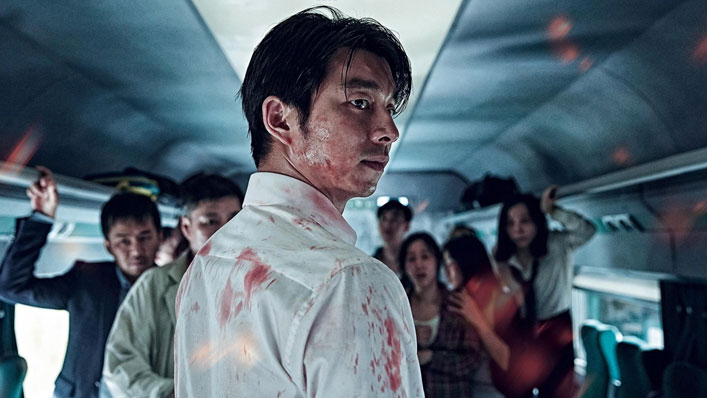
Train to Busan (2016)
Set during a zombie outbreak, Train to Busan is a horror film. Featuring plenty of human-against-undead frays as a father (Gong Yoo) attempts to take his young daughter (Kim Su-an) to the eponymous city, it’s also an action movie. And, thanks to its supreme command of edge-of-your-seat tension—especially given how well-worn its general concept is, and how the notion of battling zombies on a train could’ve turned out—Yeon Sang-ho’s South Korean blockbuster is firmly a thriller too.

Us (2019)
With Us, Jordan Peele proved that the style, smarts and scathing societal commentary he combined to such stunning effect in Get Out definitely wasn’t a once-off. In his second stint behind the camera, he focuses on the Wilson family, whose lives are plunged into unnerving territory when they’re hunted by their doppelgängers. As much a thriller as a horror movie, the end result also features a phenomenal performance by Lupita Nyong’o.
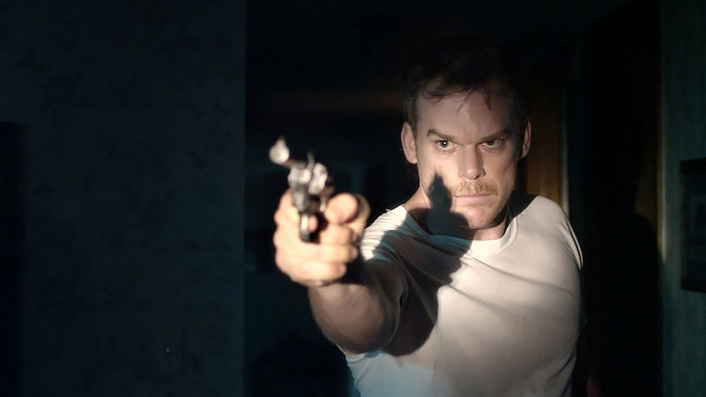
Cold in July (2014)
Directed by Jim Mickle and starring the impressive trio of Don Johnson, Sam Shepard and Michael C. Hall, Cold in July is a moody thriller that not only oozes menace, but leans wholeheartedly into its sleazy, pulpy vibe. The setup, as based on the novel of the same name: when a man accidentally shoots a burglar as they’re breaking into his home, the robber’s father sets out to get revenge.
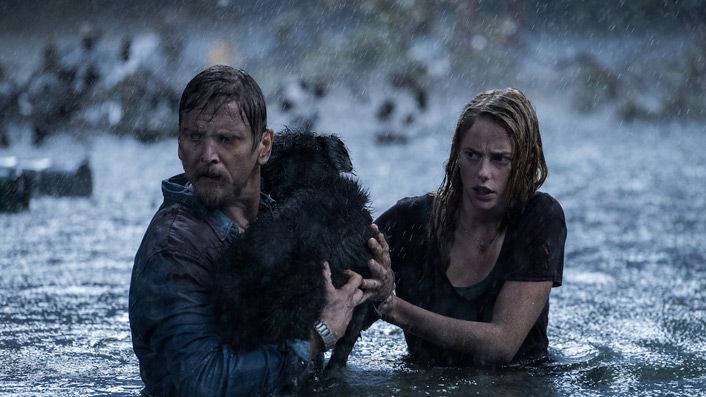
Crawl (2019)
Monster movies typically go one of two ways and, while Crawl could’ve proven a cheesy, formulaic, Sharknado-style mashup of alligators and hurricanes, it actually serves up a taut, suspenseful, snap-happy thriller. All of the expected elements are present as Kaya Scodelario and Barry Pepper try to scamper out of biting reach beneath a Florida home; however experienced horror director Alexandre Aja knows how to turn this disaster-drive fare into an effective flick.
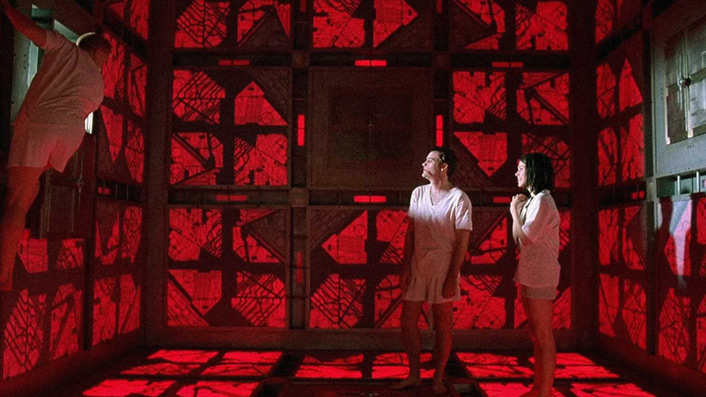
Cube (1997)
It’s hardly astonishing that Vincenzo Natali’s sci-fi/horror-thriller became an immediate cult hit upon its 1997 release, instantly winning over viewers with its surreal and savagely clever concept. In a connected series of cube-shaped rooms, a group of strangers endeavour not just to survive, but to escape—and to evade the intricate and brutal traps that’ll kill them if set off.

Memento (2000)
For a film about a man struggling with his memory, Memento certainly had zero troubles tattooing itself into the brains of its adoring viewers. The concept behind Christopher Nolan’s first big hit is both clever and compelling, as is the supremely twisty script; however it’s the writer/director’s execution—and the pitch-perfect performance by Guy Pearce—that help this 2000 instant classic linger in the mind for much, much longer than 15 minutes.

Pi (1998)
In hindsight, it seems obvious. If anyone was going to turn their low-budget feature debut into a compulsive and compelling thriller about an obsessive mathematician, it’s Darren Aronofsky. Made for less than $140,000, Pi premiered at Sundance in 1998 and instantly became the movie everyone was talking about, with its bustling black-and-white frames charting a search for order—and, thanks to humanity’s chaos, the impossibility of that quest.

The Nightingale (2018)
Jennifer Kent’s sophomore feature, following The Babadook, is a stunning piece of Australian cinema that isn’t afraid to confront the country’s violent and oppressive colonial past head on. From its brutal beginning, which demonstrates the horrific treatment received by Irish convict Clare Carroll (Aisling Franciosi) at the hands of British soldiers, The Nightingale doesn’t waver in tone or intensity—or in its exceptional performances by Franciosi and Indigenous dancer-turned-actor Baykali Ganambarr.
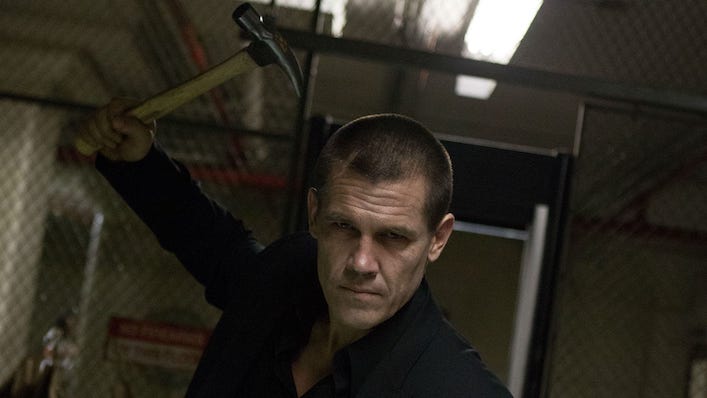
Oldboy (2013)
Park Chan-wook’s Oldboy is the best Oldboy, and that’ll never change. That said, Spike Lee’s 2013 remake still reverberates with stinging savagery as it tears down wealth, privilege, and the type of toxic men who’ve always been able to hide behind both. Lee helms a pulpy, biting, lurid, and melodramatic twist on the tale that’s largely faithful to the original, but sinks its own teeth in—and features memorable performances by Josh Brolin, Samuel L Jackson, and Elizabeth Olsen.
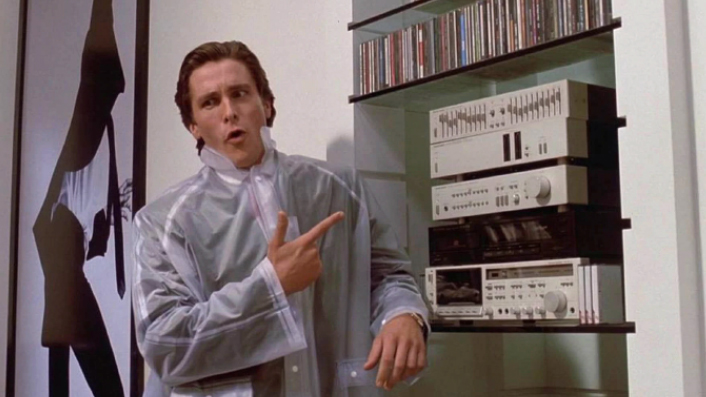
American Psycho (2000)
Adapting Bret Easton Ellis’ 1991 novel of the same name—a book that still has to be sold in sealed wrapping in Australia—American Psycho finds the ideal tonal balance between slasher thriller and immensely dark comedy. That’s a feat that can largely be credited to two people: writer/director Mary Harron and star Christian Bale. Before the latter was Batman (and before his co-star Jared Leto played the Joker), he was pitch-perfect as an unhinged investment banker.
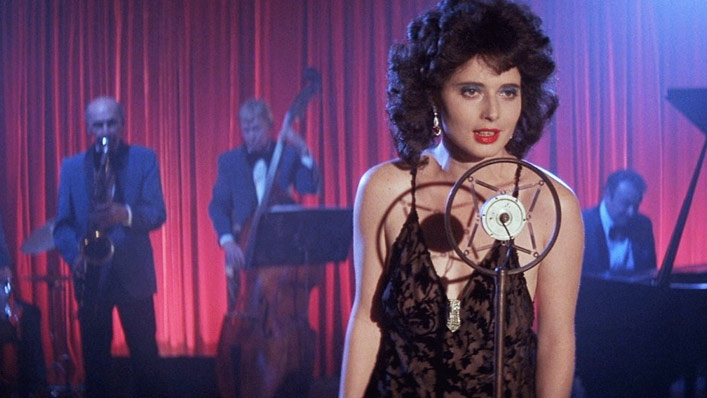
Blue Velvet (1986)
David Lynch, severed body parts, suburban mysteries, Isabella Rossellini as a traumatised lounge singer and a deranged Dennis Hopper yelling “baby wants to fuck!”. That’s Blue Velvet in a nutshell. From the moment the film zooms in on a detached ear in a field near an otherwise idyllic-looking suburban home, Lynch takes audiences on a wild, mysterious and enigmatic ride, with the fresh-faced Jeffrey Beaumont (Kyle MacLachlan) as a guide.
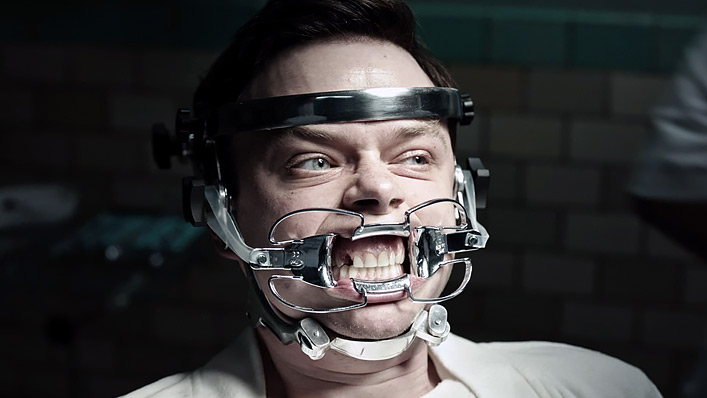
A Cure for Wellness (2016)
As directed by Pirates of the Caribbean veteran Gore Verbinski, A Cure for Wellness treads where a lengthy list of other thrillers have already stepped—but, even though it’s hardly original, it’s still sleek, sinister, stylish and feverish. It also boasts a fantastic setting, thanks to its main maze-like sanitarium location. That’s where rising Wall Street hotshot Lockhart (Dane DeHaan) soon finds himself trapped after a quick visit turns into a nightmare.

Dressed to Kill (1980)
After a New York housewife (Angie Dickinson) is killed in an elevator, Brian de Palma’s thriller explores the aftermath, focusing on her psychiatrist (Michael Caine), her son (Keith Gordon) and a sex worker (Nancy Allen) who witnessed the murder. Noted for its hefty nods to Psycho, Dressed to Kill has directorial style and flair to spare—of the lurid, visually dazzling kind—as well as a propulsive blend of crime, mystery, sex and terror.
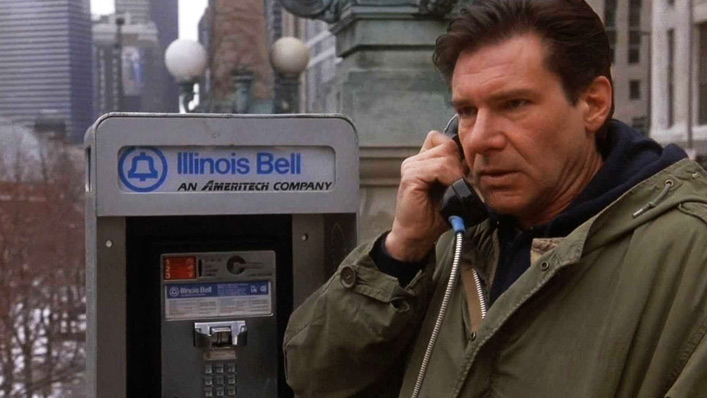
The Fugitive (1993)
A one-armed man sparks a citywide manhunt in The Fugitive, not that anyone will believe the two-armed Dr Richard Kimble (Harrison Ford) when he tries to explain his wife’s suspicious death and plead his own innocence. In one of the big action-thrillers of the ‘90s, Andrew Davis remakes the ‘60s TV show of the same name in a taut, suspenseful fashion. The chase scenes are meticulously orchestrated, and both Ford and Tommy Lee Jones are at the top of their game.

Gone Girl (2014)
On the page, Gone Girl’s game of cat-and-mouse is engrossing to read. On the screen, as directed by David Fincher (with a screenplay written by Flynn herself), it takes on a clinical yet compelling extra dimension. The setup: after his wife Amy (Rosamund Pike) disappears from their Missouri home, Nick Dunne (Ben Affleck) becomes the prime suspect. That’s just the opening gambit, with Gone Girl relishing its plethora of thorny twists.

The Hateful Eight (2015)
When Quentin Tarantino traps a band of not-so-law-abiding folks together, witty banter and rampant thrills tend to result. It proved true with Reservoir Dogs, and does so again with western-thriller The Hateful Eight. Alongside criminals and bounty hunters, audiences step inside Minnie’s Haberdashery as a blizzard sets in. The cast includes Samuel L. Jackson, Kurt Russell, Jennifer Jason Leigh and Walton Goggins, who relish Tarantino’s characteristically talky dialogue.
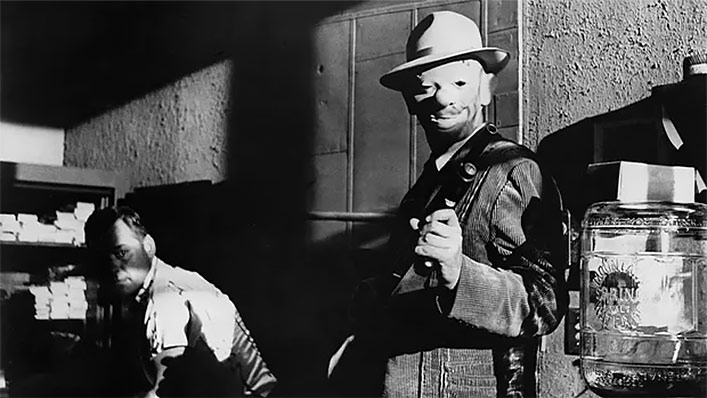
The Killing (1956)
Initially hitting screens in 1956, Stanley Kubrick’s first major Hollywood film sees the great director in noir mode, and charting a familiar storyline—chronicling an experienced criminal’s attempt to pull one last heist before getting married. Of course, there’s no such thing as a formulaic Kubrick film, even when he’s working with recognisable elements. As the crim in question, Sterling Hayden is reliably superb.
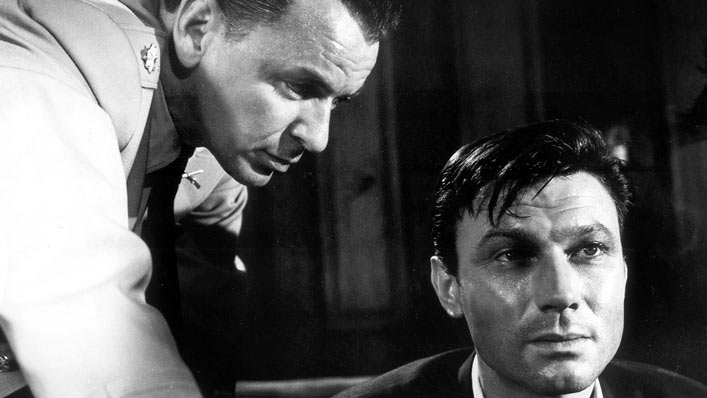
The Manchurian Candidate (1962)
A political thriller steeped in subterfuge, the sleeper agent-themed The Manchurian Candidate may focus on Cold War tensions; however, exploring tussles between the US, Russia and China, there’s much about John Frankenheimer’s film that still proves relevant today. Frank Sinatra flashes those ol’ blue eyes as the Korean War veteran brainwashed before his return home, while Janet Leigh and Angela Lansbury also feature.
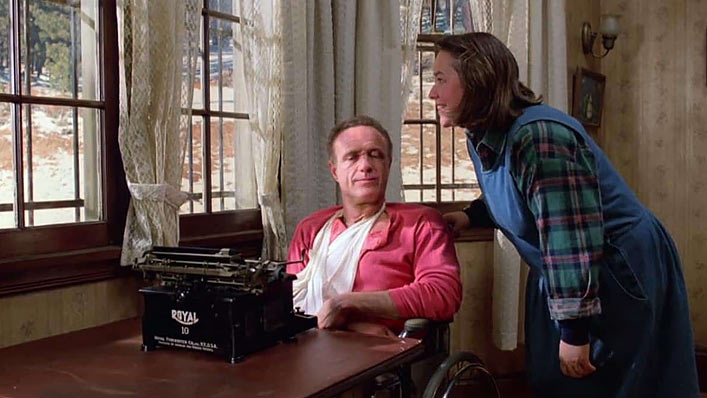
Misery (1990)
Based on Stephen King’s 1987 novel of the same name and directed by Rob Reiner, Misery swings a hefty axe at toxic fandom. In fact, in following a famed novelist’s (James Caan) gruesome run-in with his supposed number-one fan (an Oscar-winning Kathy Bates)—including her demands that he cater his work specifically to her preferences and desires—it savvily and disquietingly pre-empted much of today’s discourse about that very subject.
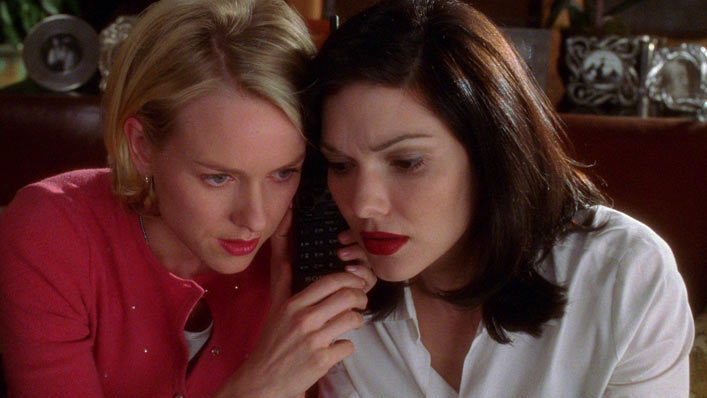
Mulholland Drive (2001)
In a different world, Mulholland Drive could’ve been a TV show. Cinephiles should forever be thrilled that David Lynch’s noir mind-bender didn’t work out on the small screen, leading to one of the most astonishing films of a career filled with movies that earn that term several times over. Naomi Watts plays a wannabe actress freshly arrived in Hollywood, Laura Harring is her new friend with memory problems, and the results are Lynchian in the extreme.
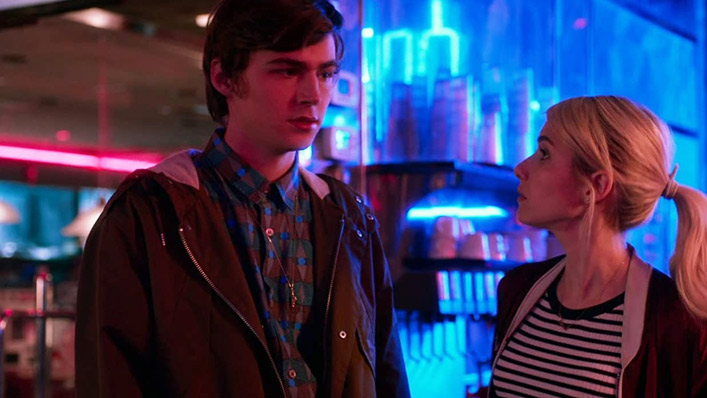
Nerve (2016)
Nestled among the growing hordes of social media-focused thrillers that subject their attractive protagonists to the savage whims of the online masses, Nerve shouldn’t be as effective as it is. But with Catfish directors Ariel Schulman and Henry Joost at the helm, Emma Roberts and Dave Franco starring, a fast pace leaning in its favour and an astute view on its topic, it ranks among the best examples of its very specific subgenre.

Prisoners (2013)
When Denis Villeneuve made his English-language debut, of course he did so with a thriller, the French Canadian filmmaker’s favourite genre. As led by Hugh Jackman and Jake Gyllenhaal, the bleak, dread-inducing Prisoners charts the abduction of two Pennsylvanian girls, the police investigation to find the culprit and the response by one of the children’s fathers. Also impressive is the rest of the cast, spanning Paul Dano, Melissa Leo, Viola Davis, Maria Bello and Terrence Howard.

Seven (1995)
Alongside Zodiac, Seven is one of David Fincher’s perfect thrillers, all while tackling a topic—serial killers—that the director clearly finds both fascinating and riveting. No one will ever forget the film’s ending, or Brad Pitt’s screaming, or the movie’s elaborate and unsettling crime scenes, or its Nine Inch Nails-soundtracked opening credits. Yes, the list keeps going.

Sicario (2015)
Sicario may fall into multiple genres, but it reverberates with such a taut, anxious, nervy air that it’s always going to tick the thriller box. Denis Villeneuve’s features often do that, the filmmaker boasting a knack for keeping audiences on edge for an extended period. Here, though, the story—following a FBI agent (Emily Blunt) recruited to a government task force to apprehend a Mexican drug cartel—is responsible for ample edginess.
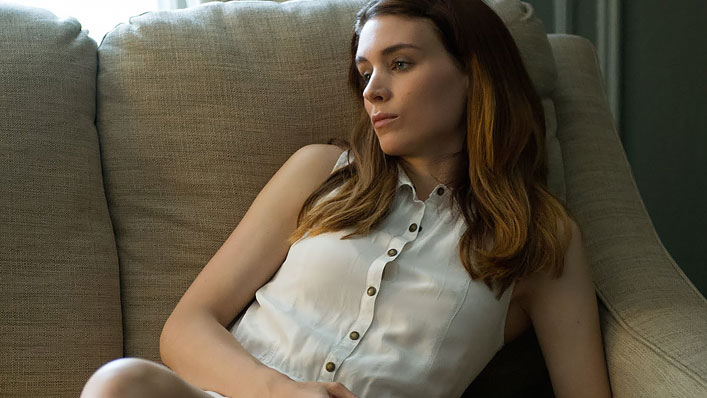
Side Effects (2013)
When Steven Soderbergh and Scott Z. Burns not only join forces, but direct their attention to the medical world, great thrillers result. First came the eerily prophetic Contagion, with the pair then reteaming for pharmaceutical and psychiatry industry takedown Side Effects. Rooney Mara stars as a young woman prescribed a new antidepressant after a suicide attempt, a move that embroils everyone around her (including Channing Tatum, Jude Law and Catherine Zeta-Jones) in a twisted plot.
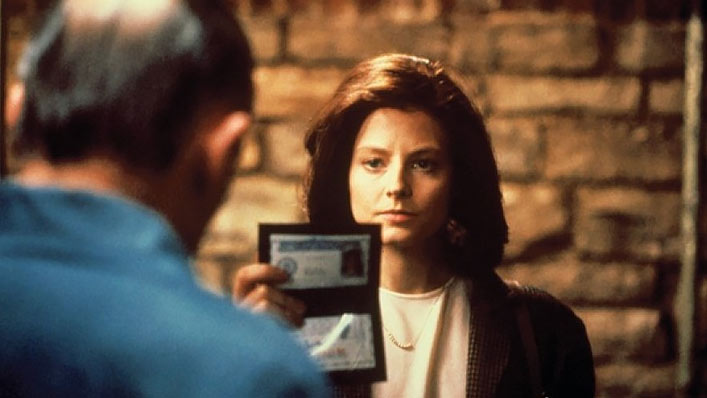
The Silence of the Lambs (1991)
One of only three films to ever win the Oscars’ ‘big five’ awards—best picture, director, actor, actress and screenplay—The Silence of the Lambs brings Thomas Harris’ novel of the same name to the screen in gripping fashion. From Jodie Foster and Anthony Hopkins’ performances as a trainee FBI agent and the cannibalistic killer she’s interviewing, respectively, to director Jonathan Demme’s handling of pace, it simmers with intensity from start to finish.

The Taking of Pelham One Two Three (1974)
Forget the 2009 remake, even with Tony Scott at the helm. Sorry, but 1974’s The Taking of Pelham One Two Three is the superior adaptation of the famous novel of the same name. It earns that status for Walter Matthau’s turn as a New York City Transit Authority police lieutenant alone; however this subway-set hostage thriller overflows with highlights, including fellow cast members Robert Shaw and Jerry Stiller, taut action scenes, and a memorable score.
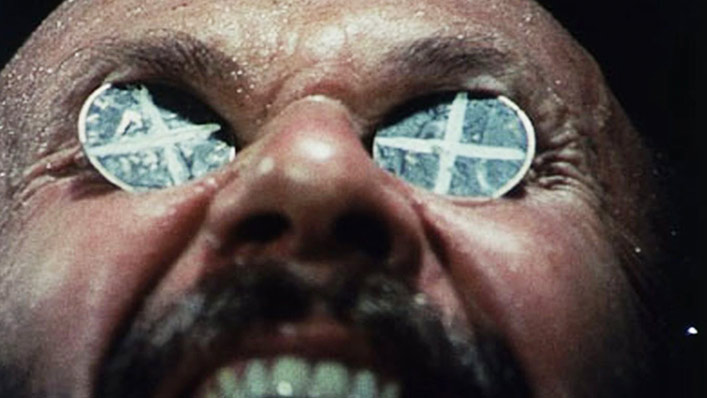
Wake in Fright (1971)
The movie that helped turn Australia’s outback expanse into a source of unrelenting tension, Wake in Fright unfurls the brutality and terror that arises when a schoolteacher (Gary Bond) is stationed in a desolate regional town. Visually, it’s a masterpiece. Emotionally, it’s a nightmarish masterwork. Adapting Kenneth Cook’s book, Ted Koetcheff doesn’t put a foot wrong—including the casting of Donald Pleasance, veteran Chips Rafferty and a young Jack Thompson.
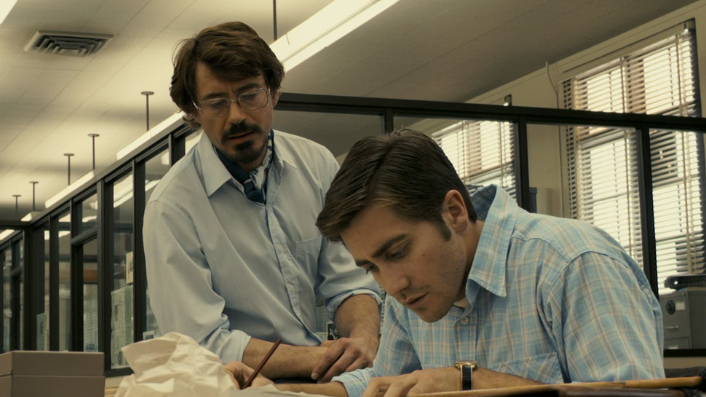
Zodiac (2007)
Benefiting from superb casting, a grimly fascinating case, and David Fincher’s affinity for both serial killer stories and procedural tales, this 2007 crime thriller will always be the director’s exquisite, engaging and enthralling masterpiece. Not a second of its 57-minute running time is wasted as a journalist (Robert Downey Jr), a cartoonist (Jake Gyllenhaal) and a detective (Mark Ruffalo) endeavour to track down California’s infamous late 60s and early 70s murderer.

